

After Mark Kangogo’s official disqualification for testing positive for two substances banned by the World Anti-Doping Agency (WADA), we wanted to pass the floor to Pierre Sallet from the Athletes For Transparency Association (AFT) – at the origin of the Health Programme, – to explain the Programme’s precise role, which is now used by the world’s biggest trail running races (Golden Trail Series, UTMB® Mont-Blanc, etc.) and more broadly in sport in general.
Could you explain what the Health Programme entails and when it started?
The "Quartz Programme", as it is known, emerged in 2008. It was established after concern for the health of trail runners and has always been led by the Athletes For Transparency Association (AFT), which I currently chair. The main aim of the Programme or Health Policy, as it is now simply known, is to assure a runner’s medical fitness to participate in a trail running event.
At the events where we intervene, we carry out a series of medical tests, on D-30 and D-1 before the race to obtain the athlete’s biological profile, and for medical reasons in the context of this health policy, we also do toxicology testing at the race’s finish line to monitor any use of prohibited substances. Subsequently, we can prohibit a runner from taking the race start and give them a "no start", if we consider that they are not medically fit but also to downgrade them if they haven’t complied to the policy’s rules that prohibit certain substances.
We use a medical list which contains a set of substances that we judge to be dangerous for the runner’s health and subsequently we prohibit them. Obviously, this medical list contains all the substances and methods for anti-doping, but the additional substances are present because they have proven to be a danger in trail running. If we detect one of the substances afterwards, we consider that the athlete has not respected the race rules and put themselves in danger and therefore we can disqualify them for non-compliance with the rules in the same way as if they had used poles when they were not allowed.
I would also like to point out that we carry out a great deal of research on health issues with athletes and the strength of our association is having a very large international network. We work with people and structures that have the highest level of international expertise in all these areas, whether doctors, scientists, clinical investigation centres or laboratories. We only rely on published and approved scientific work to establish our Programme.
What sets you apart from world anti-doping bodies?
As their name suggests, anti-doping bodies apply an anti-doping policy, with a list of prohibited substances, and methods (such as blood transfusion for example) and they only have one aim; to detect usage of these substances or methods. The Health Programme’s aim is different, and above all consists of protecting the athlete’s integrity and health. This is why we established a medical list including additional substances to the anti-doping list and which have been proven to be dangerous in competition trail running.
Our mission is not to catch those who cheat – although we are pleased to help make the sport fair – it’s to talk about health issues with the athletes and protect them when they aren’t able to do it themselves. We believe that if you need to take a drug that could be dangerous whilst racing, you can’t participate in a competition. First, you should get better, and then return to competition.
This is also why we have the same person who carries out all the testing throughout the year and don’t have a very protocolary, rigid scheme of doping controls, to establish a trusting relationship with the athletes. We want them to feel open to talk with us about their health, their doubts, and ask questions. We are here to answer them and support them.
We never ask an athlete if they are doping! What we want to understand is how certain substances could have ended up in their body and if this could be linked to a pathology or other concerns. If the athlete doesn’t have a clear and reassuring explanation, we simply don’t allow them to start the race for health reasons. It should also be noted that athletes can consult all their medical results on a platform and thus benefit from regular medical checks through the Health Programme. Following the request of certain athletes, in particular female athletes, in 2023 we would like to work on more enhanced controls to offer them even higher-quality medical monitoring.
In which sports is this programme used?
Currently, only in trail running on two major circuits who state it in their regulations: the Golden Trail Series and the UTMB® Mont-Blanc. There are also individual organisations that call on our services, such as the Marathon des Sables and the Festival des Templiers.
We have received other requests from other sport disciplines, but it is important to understand that we are an association under the 1901 law governed by French Law, and we are volunteers. Therefore, we are currently limited in our actions and cannot respond to requests from other sports. Also, we would first like to better install the Programme in trail running and once everything is well-established and we are accepted by the whole community, we will be able to move towards other disciplines.
Despite everything, it is important to note that the UCI (the French International Cycling Union) has also adopted a health policy, which is not our Programme, but which operates on an identical principle. In 2018, they created this health policy with a medical list which only includes one substance – Tramadol – but which joins the official anti-doping authorities list. This substance will also officially join the WADA's prohibited list in 2024. In the meantime, it is thanks to this health policy that the UCI was able to disqualify Nairo Quintana from the Tour de France due to two positive tests with Tramadol, exactly as we could have done in trail running with the Health Programme.
What authority do you hold over the athletes?
At races or circuits that use the Health Programme, we have the right to prohibit an athlete from starting or to judge that they have violated the race rules by non-compliance to the medical list. However, doping doesn’t concern us. What we are interested in are the medical risks such as thrombosis or serious kidney failure.
I often use the Mont Blanc as an example: this summer, the risk was too great to go to the summit and all the mountain experts knew it and so did not go. However, some people, without the necessary knowledge, still attempted the ascent. So here also, the authorities had to close the refuges! It’s the same for us! Whether the athlete is under the influence of drugs or sick, our role consists of protecting them and therefore stop them from starting the race.
We use a medical approach, so we never divulge our results, if the athlete wishes to, that’s their prerogative to explain, or not, why they are not starting the race. It is also important to understand that in the context of anti-doping, certain athletes may appeal any Provisional Suspension decisions. In this case, they are authorised to continue running while waiting for the rest of the procedure, which can sometimes be very lengthy. As part of the Health Programme, we can still legally prevent them from participating in competitions until the procedure is entirely finalised.
What is this Programme’s legal standing?
We worked very hard to make it very simple from a legal point of view. Our work is done in the context of medical fitness and therefore able to employ a "no start" for health reasons when we have a doubt about the runner’s medical fitness. As I mentioned, we are on the same legal terms as authorising using poles in a race. We don’t want to take any risks with the athletes’ health, and this is our sole motivation.
Can a private series work directly with the anti-doping authorities?
To answer this question, you must understand what is necessary to have access to: an accredited laboratory – that's pretty easy –, a public or private supervisory authority that will come and carry out the controls – which is also easy to find – and above all you need a testing authority; the structure that decides to trigger the control. The organiser of a private series therefore cannot decide to trigger this control themselves. They can submit the request to the competent anti-doping authority, but nothing binds the latter to accept it. Therefore, if a private series wishes to have systematic testing on their races, they have no choice but to go through other solutions such as health policies.
Another important point is that on social media, some people tend to oppose health and anti-doping policies when the two are in fact complementary and work even better together. There is significant collaboration between the Health Programme and anti-doping organisations. For example, we automatically leave them our control centres when they show up at a race, we give them priority over testing, we warn them when we have abnormal profiles that appear, and during a procedure they also request all the elements relevant to the progress of this procedure. Those who try to oppose both on social media simply do not know what they are talking about!
It is also important to bear in mind that all this at the organizers’ cost, and they should really be congratulated! It costs them economically, it requires significant logistics, they also take risks, but it is essential to support what they do because they fight for their vision of sport. We are lucky in trail running to have organisers who are a driving force, and we must make the most of it.
If we look at the recent case concerning Mark Kangogo, why wasn’t he checked by the Health Programme at the race start or the finish?
In our regulations, we check all the athletes in the potential top 10 on D-30 and D-1 to carry out profiling before the race, and the top 5 do toxicology testing at the finish line. When the top 10 was established, Mark Kangogo was not in the list and therefore didn’t get profiled before the race. But we also have a rule: when the anti-doping authorities are present, we give them priority over the control, and we refuse to carry out any other tests on the athlete. We are aware that this means that they will not be tested for additional substances on the medical list, but we also believe that it helps to preserve the athlete’s equilibrium. For us, it would be like breaking their psychological balance to test them twice in a row. This can be held against us, but our thoughts are always focused on how to look after the athletes. We are a Health Programme and in this specific case, testing an athlete twice at a race finish would go against his health.
Where do you stand concerning the TUEs?
TUEs are Therapeutic Use Exemptions which allow the potential use of all the substances or methods on the WADA Prohibited List. Therefore, in the event of a pathology and if authorised for the TUE, an athlete can take certain medications containing one or more substances present on the WADA prohibited list. The concern is that some athletes hijack these TUEs and may claim, for example, to have tendinopathy to be able to use glucocorticoids.
We are not here to judge whether this TUE is reasonable or unreasonable. However, what we do know is that participating in a trail running event on corticosteroids means exposing yourself to multiple risks that can be as severe as death. So, it's a no! The products that we prohibit are dangerous to use when trail running. Take for example Ibuprofen: I don't know if its use is dangerous for archery, but when trail running in intense efforts, you can suffer from severe dehydration which in turn can lead to severe renal failure.
There is also the question of chronic treatments such as for asthma. If you have this type of chronic treatment, our policy is simple: you continue your treatment as prescribed and as you are used to taking it. Then, it is two blasts of Ventolin (Salbutamol) in the morning, and it stops there. On the other hand, you take your Ventolin with you on the race, but if you need to use it during the race, it’s because you are having an asthma attack. In this case you stop and quit. If you don’t, it will be detected on arrival, and it can no longer be considered that it was used in the context of chronic treatment.
As a health programme, do you also work on certain profiles, particularly women, who are extremely thin?
Behavioural and eating disorders, such as anorexia, especially among female athletes, but not only, have been an increasing concern in recent years. We observe that some athletes do not have a "healthy" profile but, paradoxically, we are reaching our Programme’s limits. The Health Programme is essentially based on biological markers, however, anorexia is difficult to detect in the blood, even if deficiencies can be found. But for some time now we have been asking ourselves if we should look to other indexes, such as they do for modelling, which uses reference values and refuses women with extreme body mass indexes? It is very complex because we haven’t found the right solution yet and we’re still looking.
I think it's a consideration that we must carry out collectively because if the check-ups are normal, it's complicated to exclude an athlete just because we consider they are too thin and that someone said that they don’t eat enough in the evening. We are aware of the problem, and we do want to take a step further in 2023 to deal with these issues concerning anorexia by providing an appropriate response and continuing to protect the athletes’ health!

The first-ever Asian race in the history of the GTWS, the Kobe Trail, will open the 2024 season on 20th April.

The 2024 Golden Trail Series Grand Final will be held in the Ascona-Locarno region in Switzerland from 17th to 20th October 2024. The ideal setting, between lake and Alpine trails, to find out who will be declared King and Queen of the trail-running world!

In an Instagram post published last week Elhousine Elazzaoui, winner of the Grand Final in Italy last season, explains why he’s once again chosen to focus on the Golden Trail World Series.
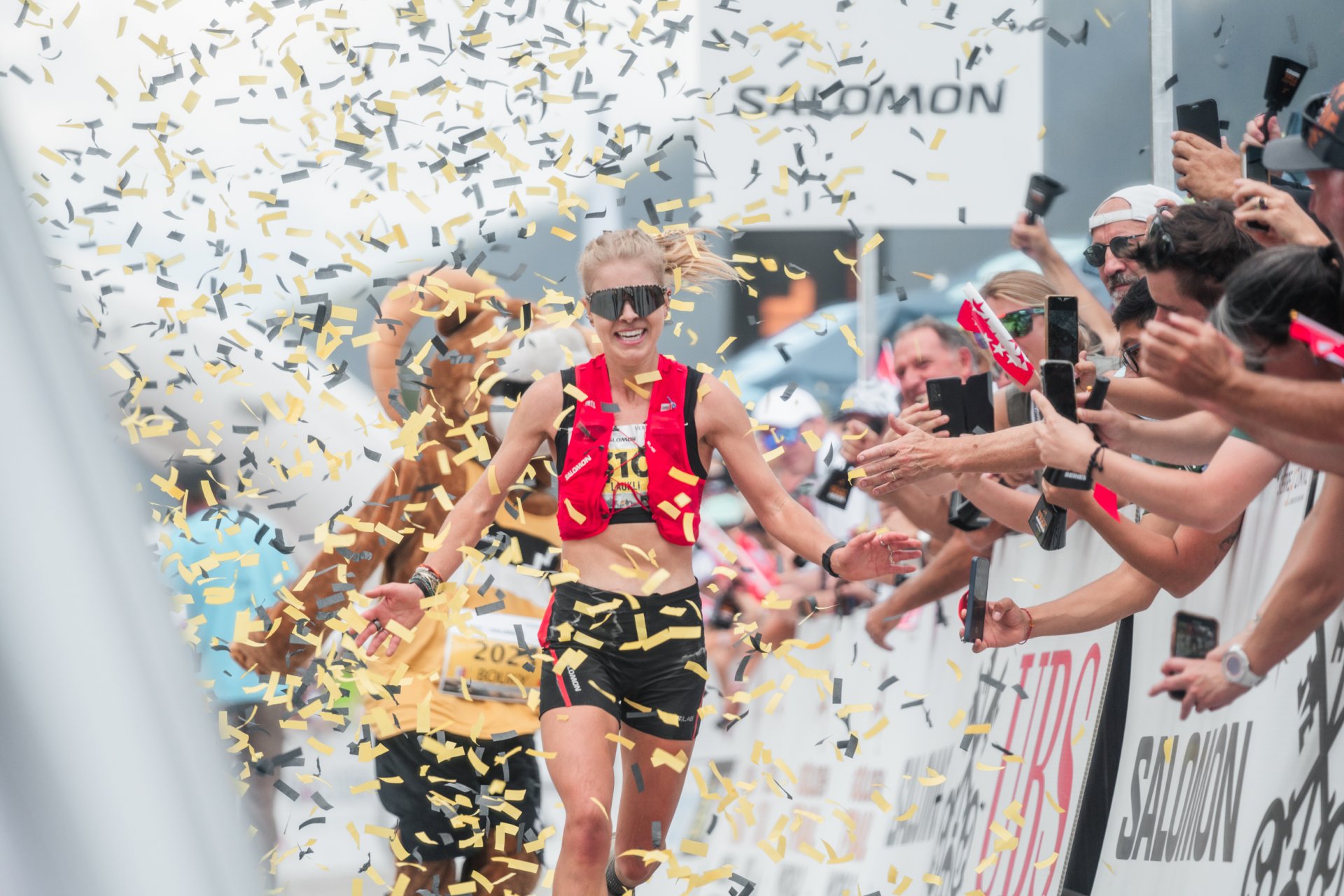
With two new races in Asia, a first-time race in Poland and a first-of-its-kind race in the USA, the Golden Trail World Series 2024 calendar is full of exciting new additions.

22ND OCTOBER 2023, START 10:15 AM, 26KM, 1,460M V+ NOLI, ITALY
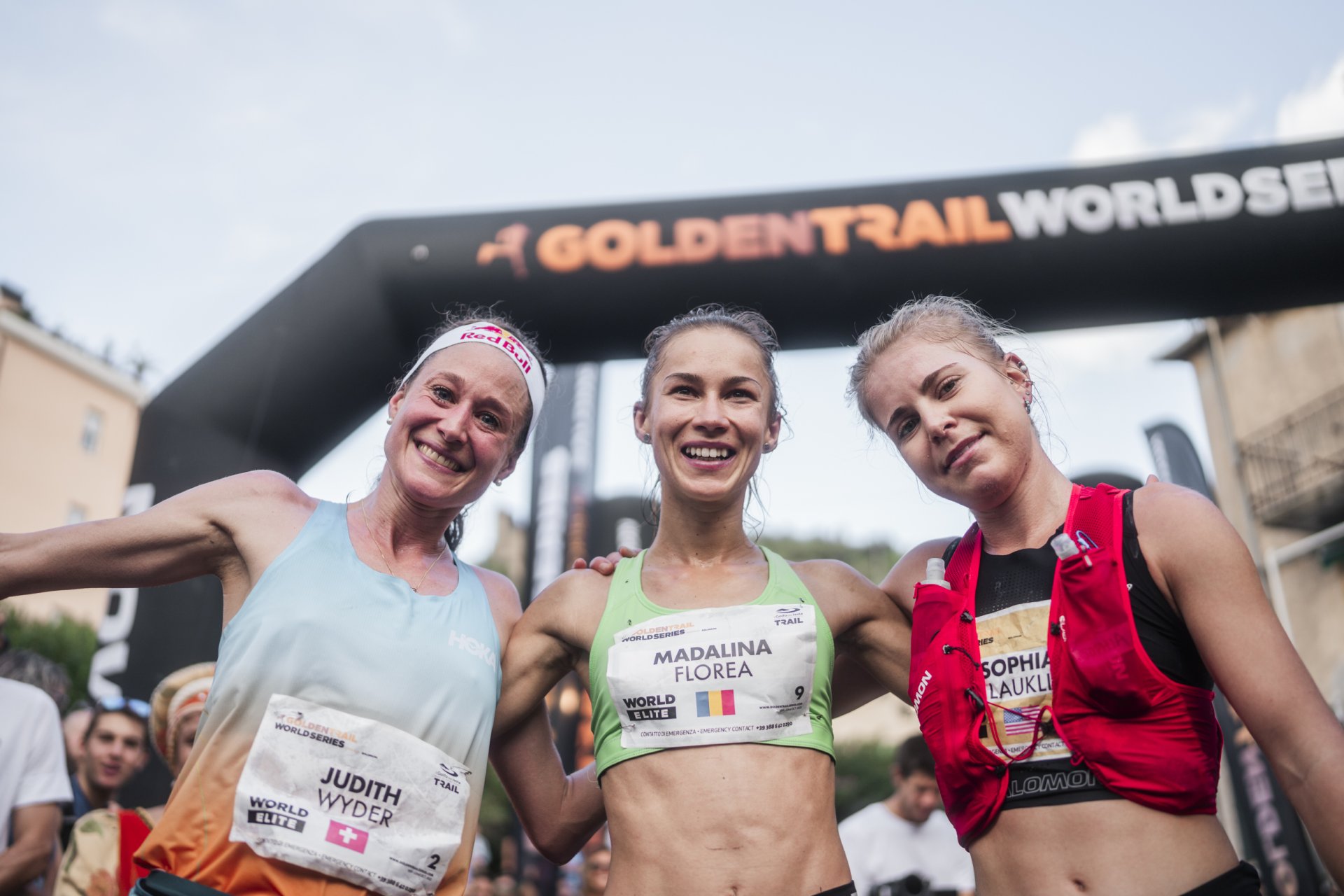
21ST OCTOBER 2023, START 10:00 AM, 26KM, 1,460M V+ NOLI, ITALY
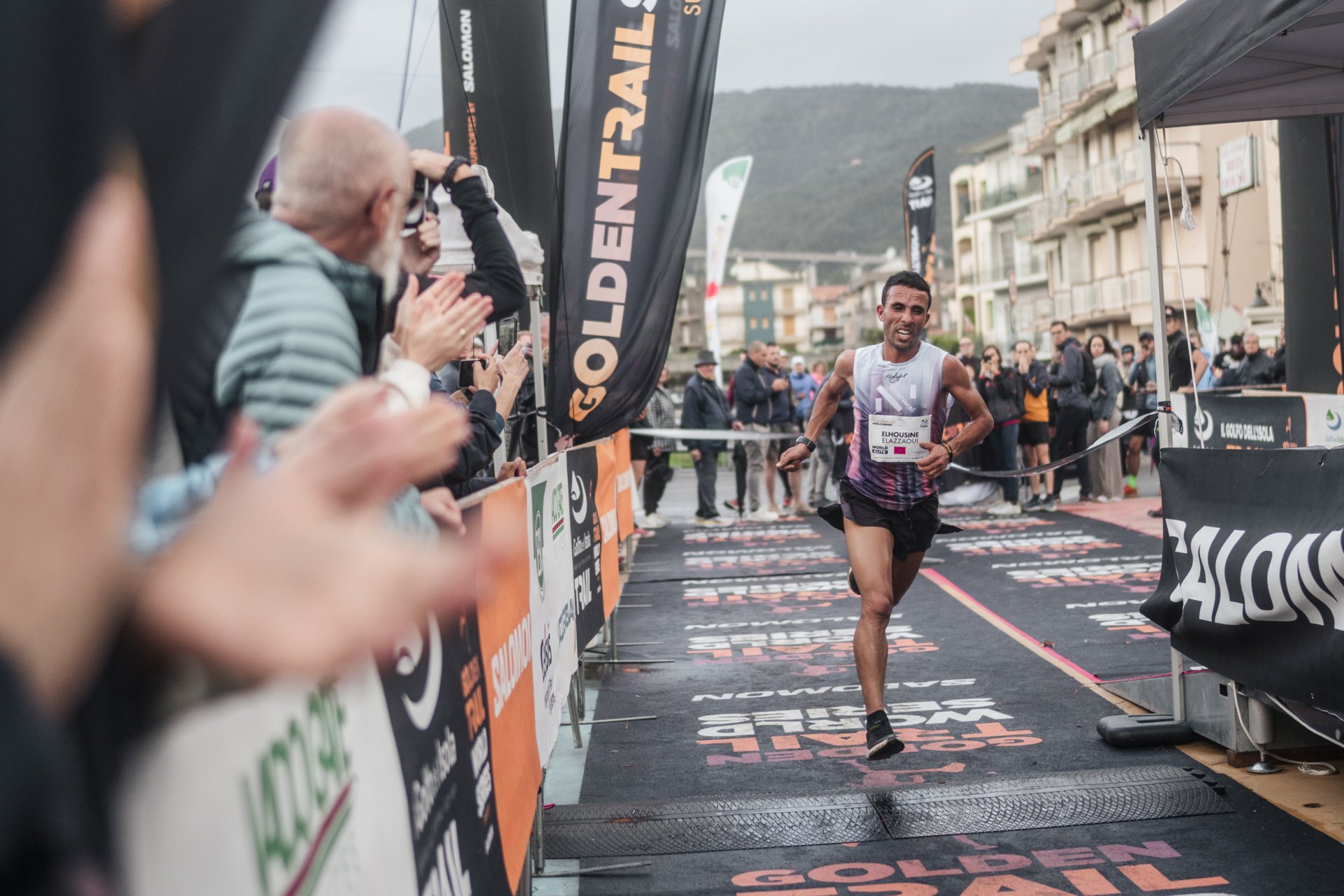
20TH OCTOBER 2023, START 4:30 PM, 8.7 KM, 400M V+ SPOTORNO, ITALY

19TH OCTOBER 2023, START 4:30 PM, 8.7KM, 400M V+ SPOTORNO, ITALY

19TH – 22ND OCTOBER 2023, 26KM, 1,430M V+ (+ prologue) Il Golfo dell Isola, Italy
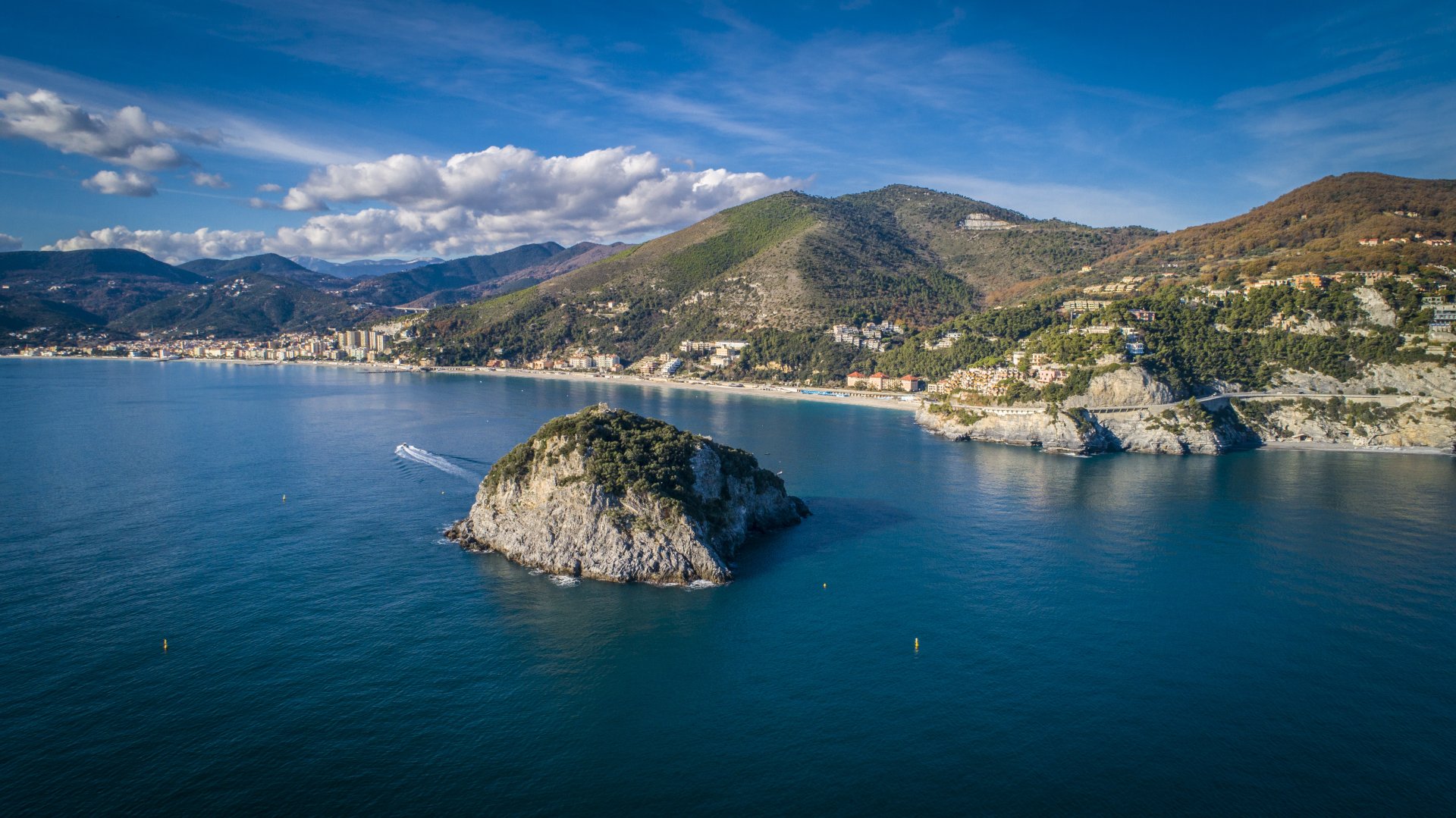
19TH – 22ND OCTOBER 2023, 26KM, 1,430M V+ (+ prologue) Il Golfo dell Isola, Italy

16TH SEPTEMBER 2023, Start 7:00 AM, 21KM, 2,382M V+ MANITOU SPRINGS, USA

16TH SEPTEMBER 2023, Start 7:00 AM (UTC-6), 21KM, 2,382M V+ MANITOU SPRINGS, USA
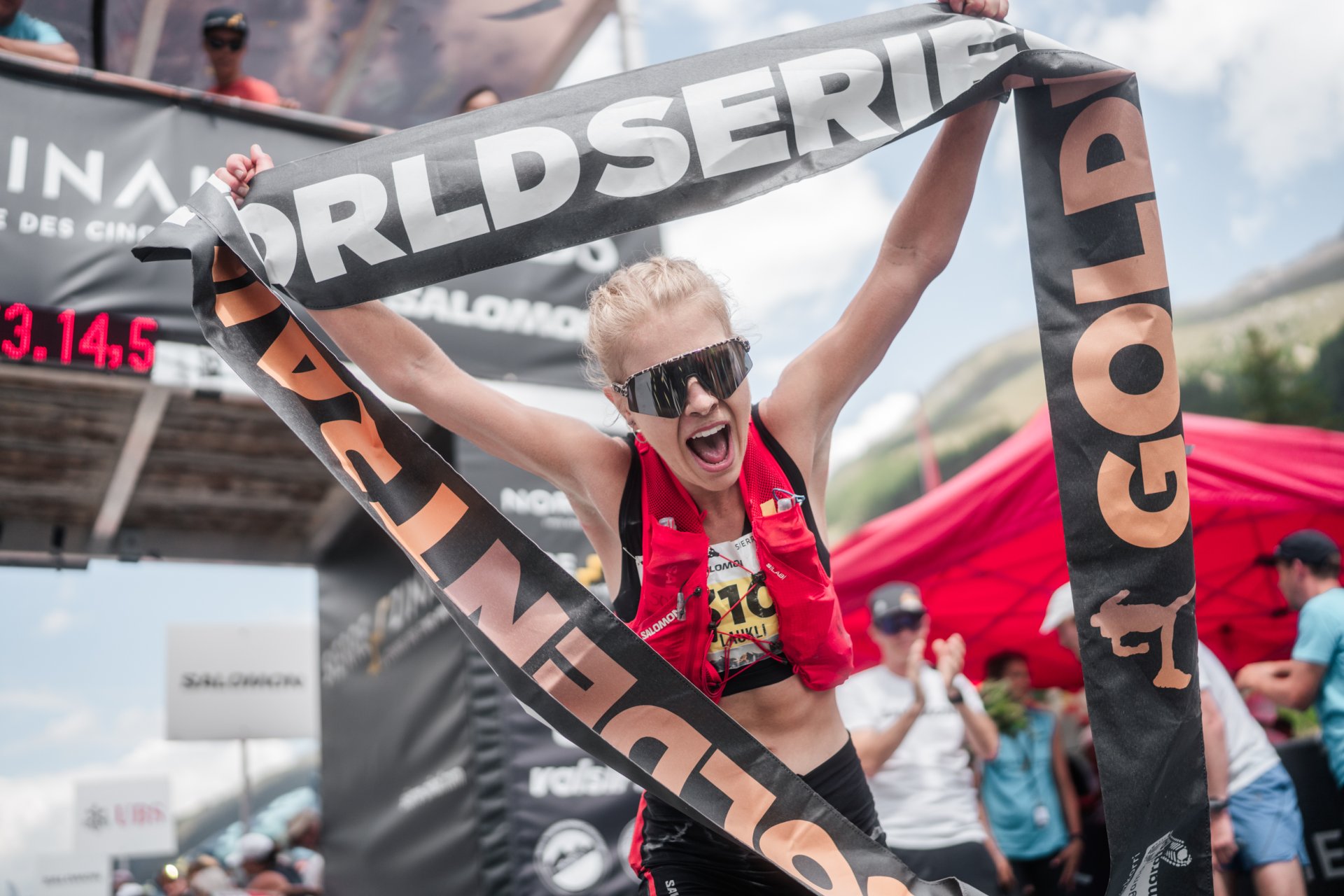
12TH AUGUST 2023, Start 10:55 AM, 31KM, 2,200M V+ SIERRE, SWITZERLAND
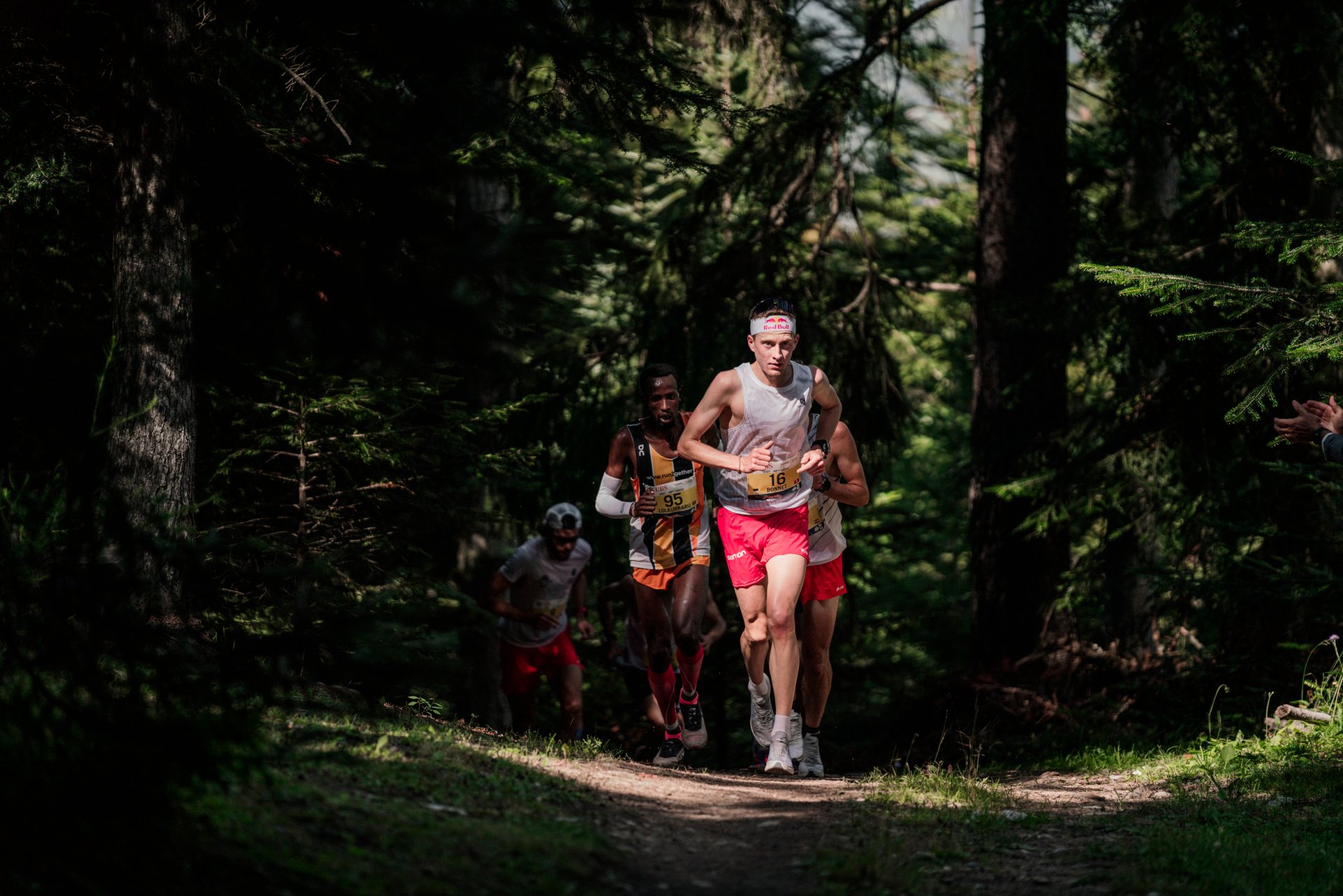
La cita de las Golden Trail con más recorrido internacional cumple 50 años con una filosofía que aúna a la élite con el atleta aficionado
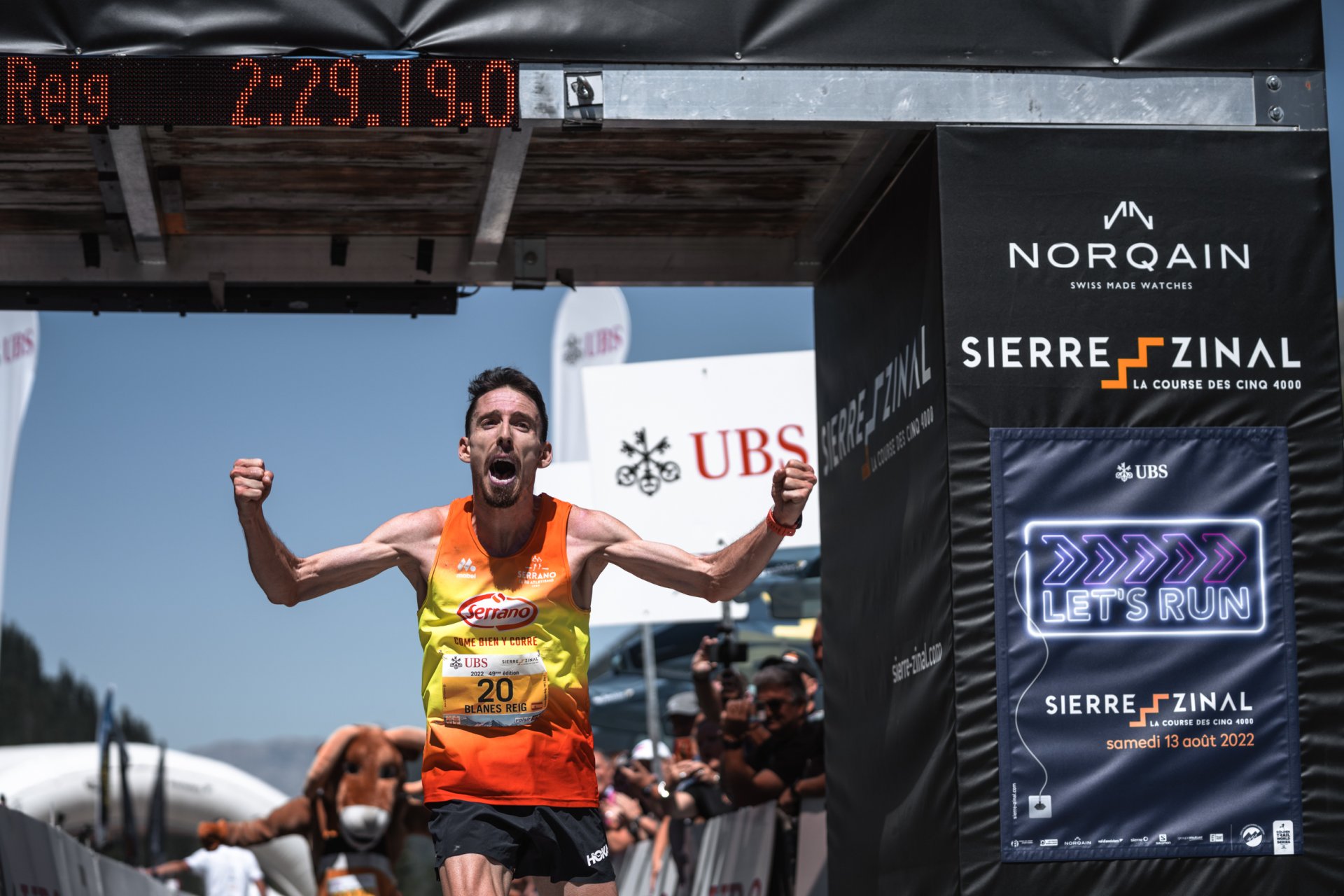
L'evento elvetico rappresenta il non plus ultra della sintesi di trailrunning e corsa in montagna

12TH AUGUST 2023, START 10:55 AM, 31KM, 2,200M V+ SIERRE, SWITZERLAND

Malen Osa dio un golpe sobre la mesa en su debut como élite en una carrera de las Golden Trail World Series siendo 4ª de la general y Manu Merillas protagonizó una de sus habituales remontadas para acabar siendo 6º y seguir liderando la general de las Golden Trail World Series.

The DoloMyths Run will celebrate its 25th anniversary tomorrow (Saturday 25 July) as the Golden Trail World Series (GTWS) reaches the half-way mark following the season opener at Zegama in Spain in May and the Mont Blanc Marathon three weeks ago.
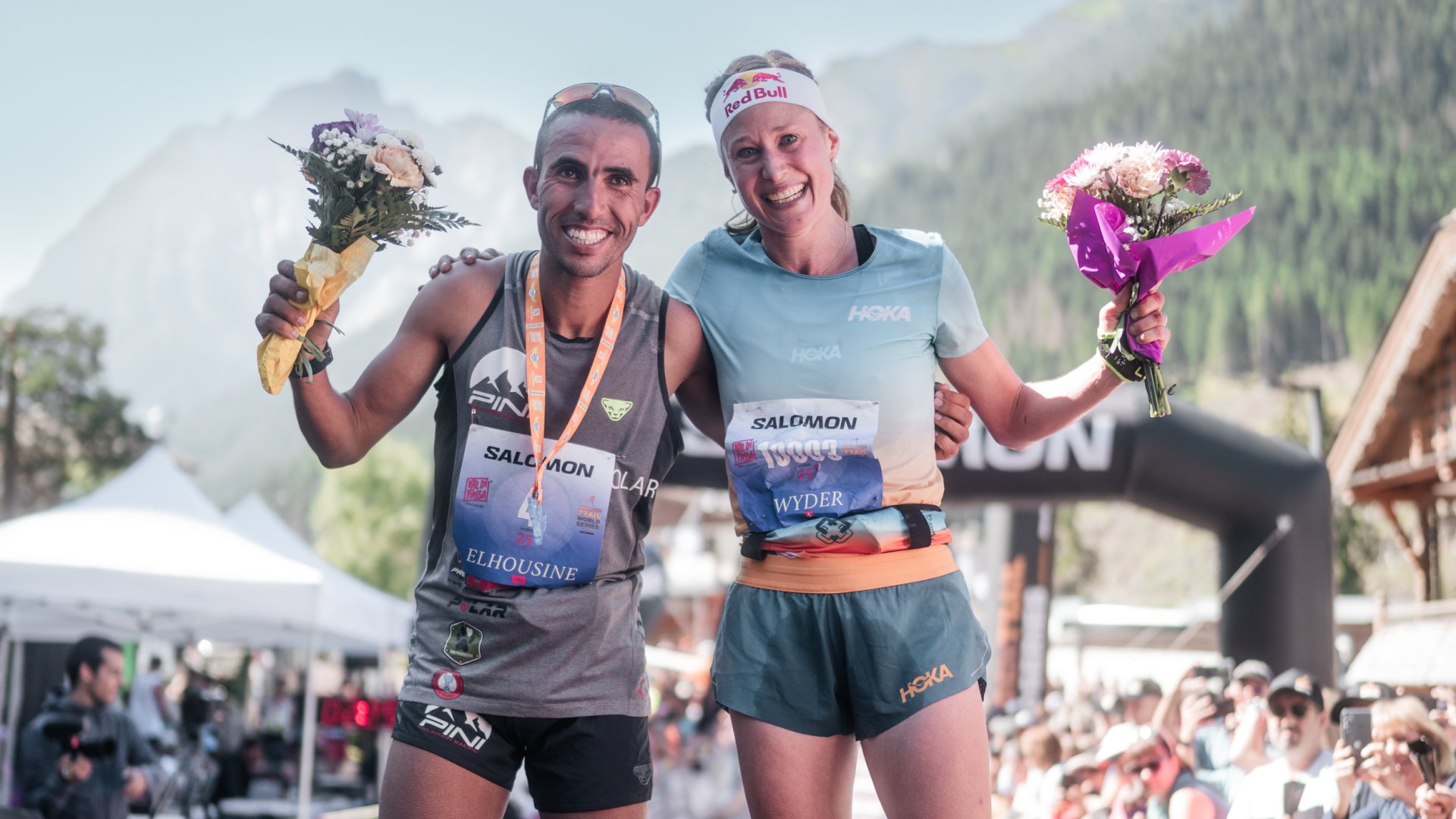
15TH JULY 2023, Start 8:00 AM, 22KM, 1,750M V+ CANAZEI, ITALY

C’est ce samedi à 8h à Canazei que sera donné le départ de la 23ème édition de La Dolomyths Run Skyrace. Manche des Golden Trail Series, des coureurs du monde entier viennent se confronter sur ce parcours réputé pour sa beauté mais aussi sa technicité.

El circuito de carreras de montaña que engloba a siete pruebas por todo el mundo aspira a globalizar y profesionalizar un deporte emergente
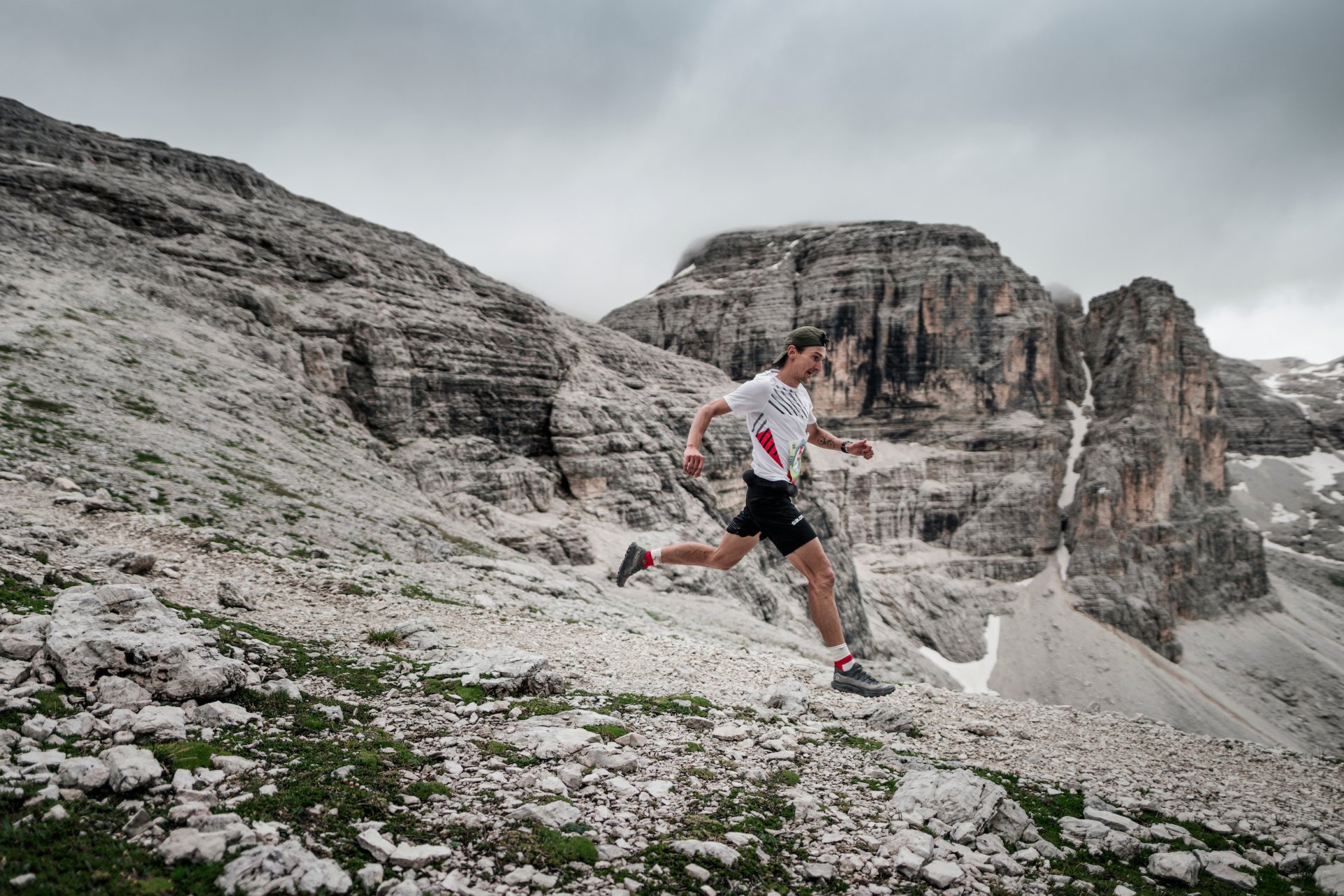
15TH JULY 2023, Start 8:00 AM, 22 KM, 1,750M V+ CANAZEI, ITALY

4th in the GTWS 2022, Élise Poncet now has her sights on the podium. She will enter the circuit at the DoloMyths Run, a race that suits her skills perfectly.

25TH JUNE 2023, Start 7:00 AM, 42KM, 2,540M V+ CHAMONIX, FRANCE

Surprise winner at Zegama and currently leading the GTWS, Daniela Oemus tells us about her aspirations for this year’s Series.
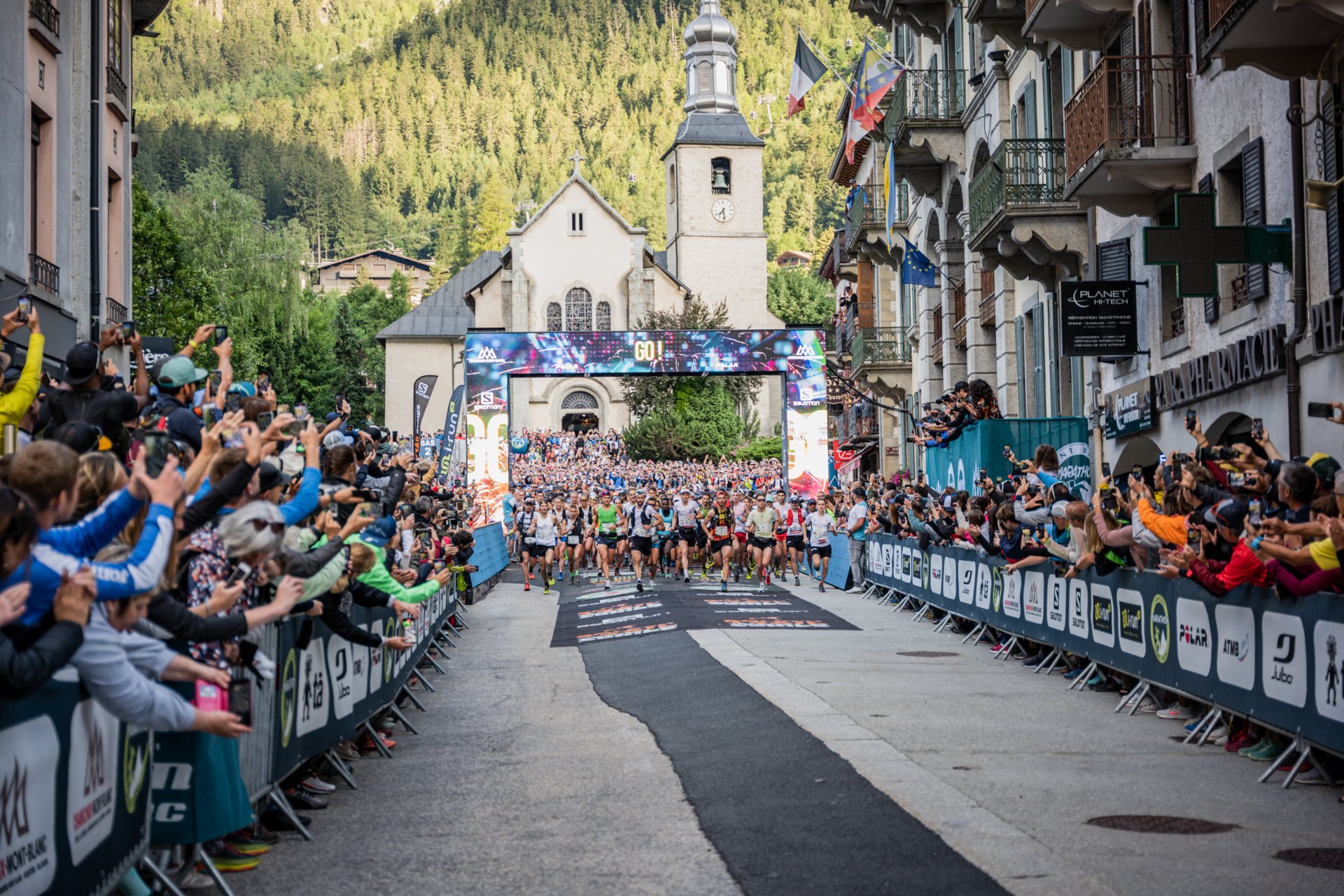
25th JUNE 2023, Start 7:00 AM, 42KM, 2,540M V+ CHAMONIX, FRANCE
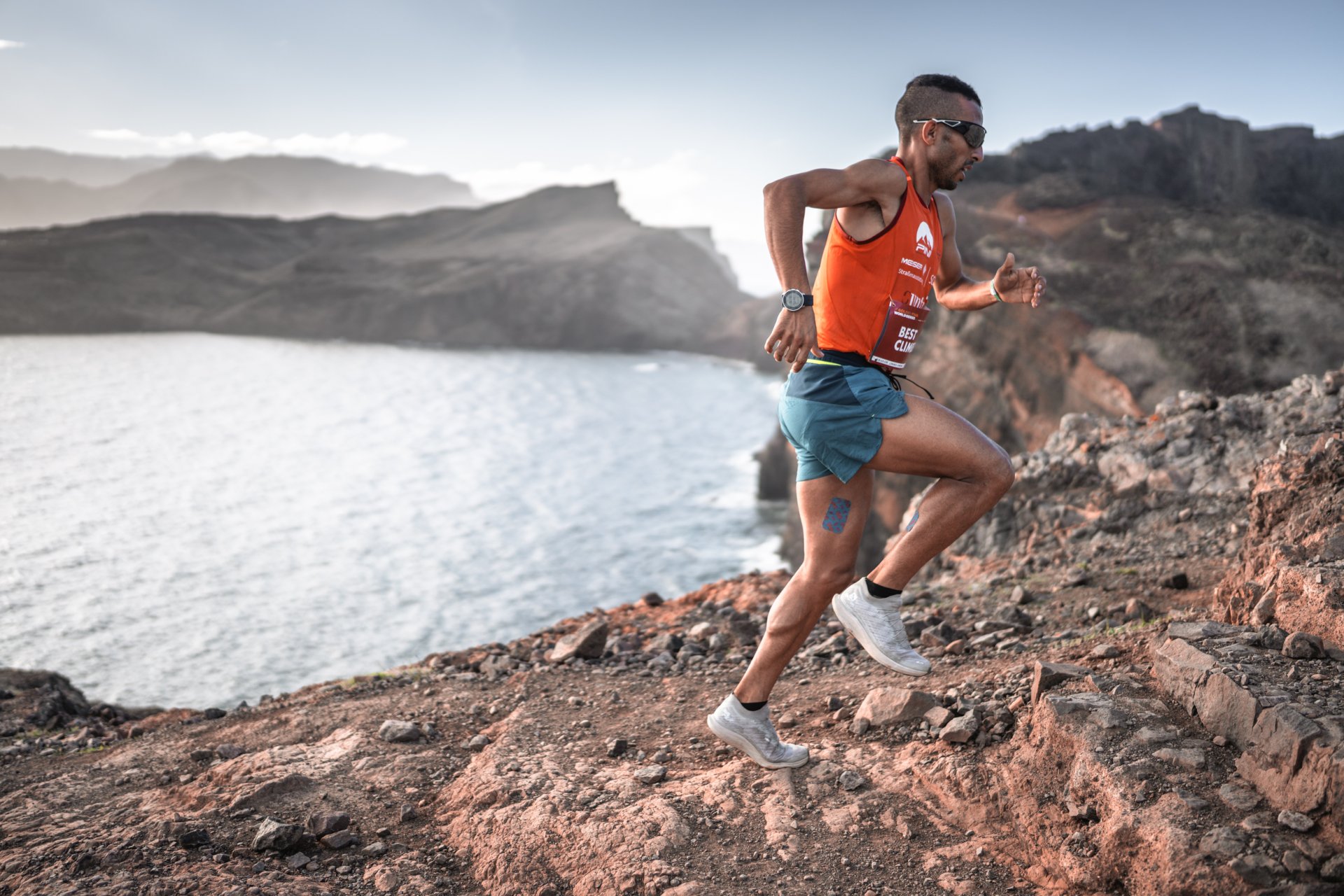
Elhousine Elazzaoui regularly finishes second and has not yet won a Golden Trail World Series race. Before the Marathon du Mont-Blanc, he reveals his victory dreams.
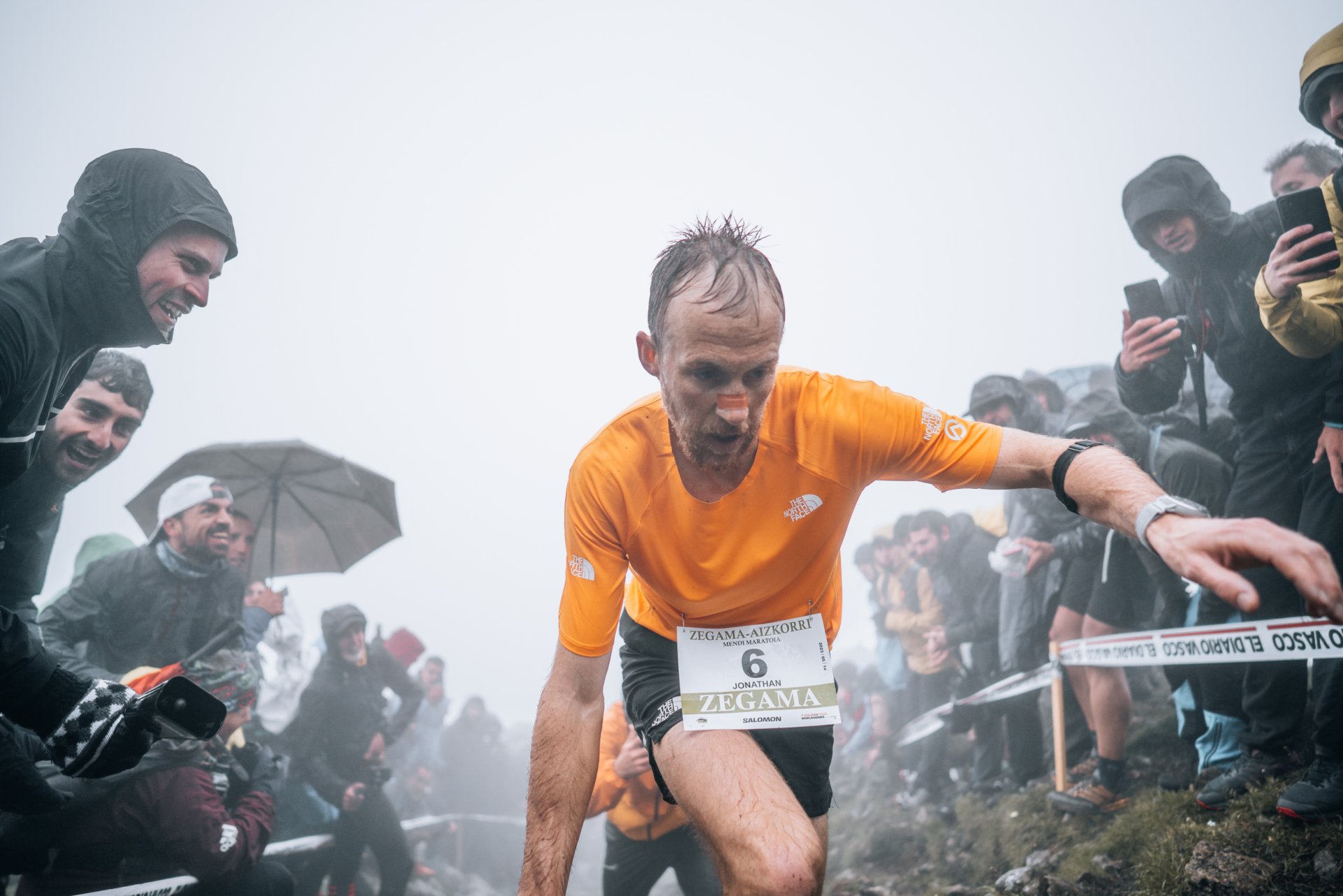
Jonathan Albon made a strong impression in the GTWS 2022 season by winning Marathon du Mont-Blanc and the Stranda Fjord Trail Race one after the other. We met him the day before Zegama, the first race of the 2023 season, where he finished 3rd. He talked about his ambitions for 2023.

Il Golfo Dell’Isola Trail Race, the Golden Trail World Series Grand Final in Italy is open to all runners. Places are limited to 800 race bibs.
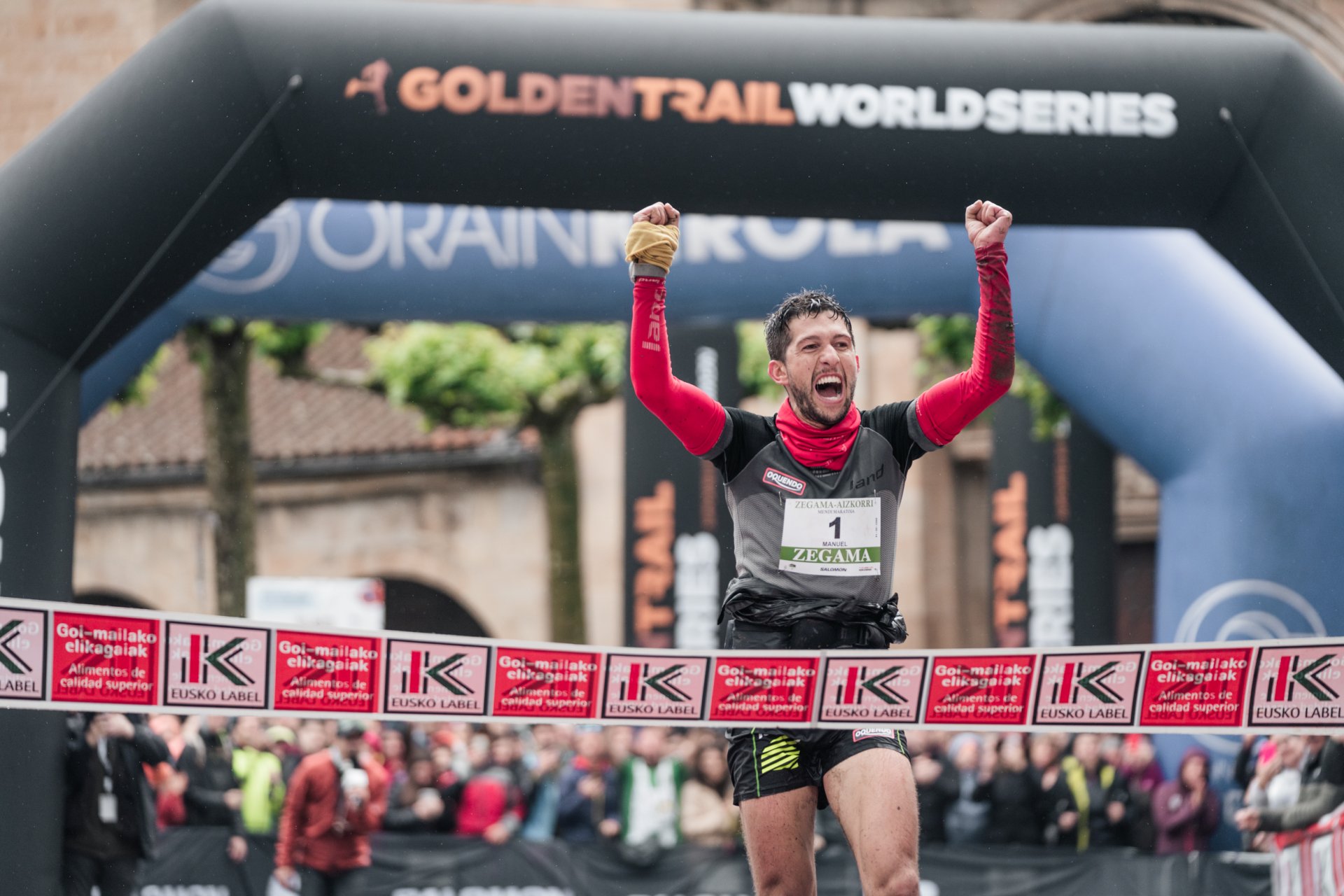
Manuel Merillas and Daniela Oemus take the win for the first time at Zegama-Aizkorri and take the lead in the GTWS 2023.
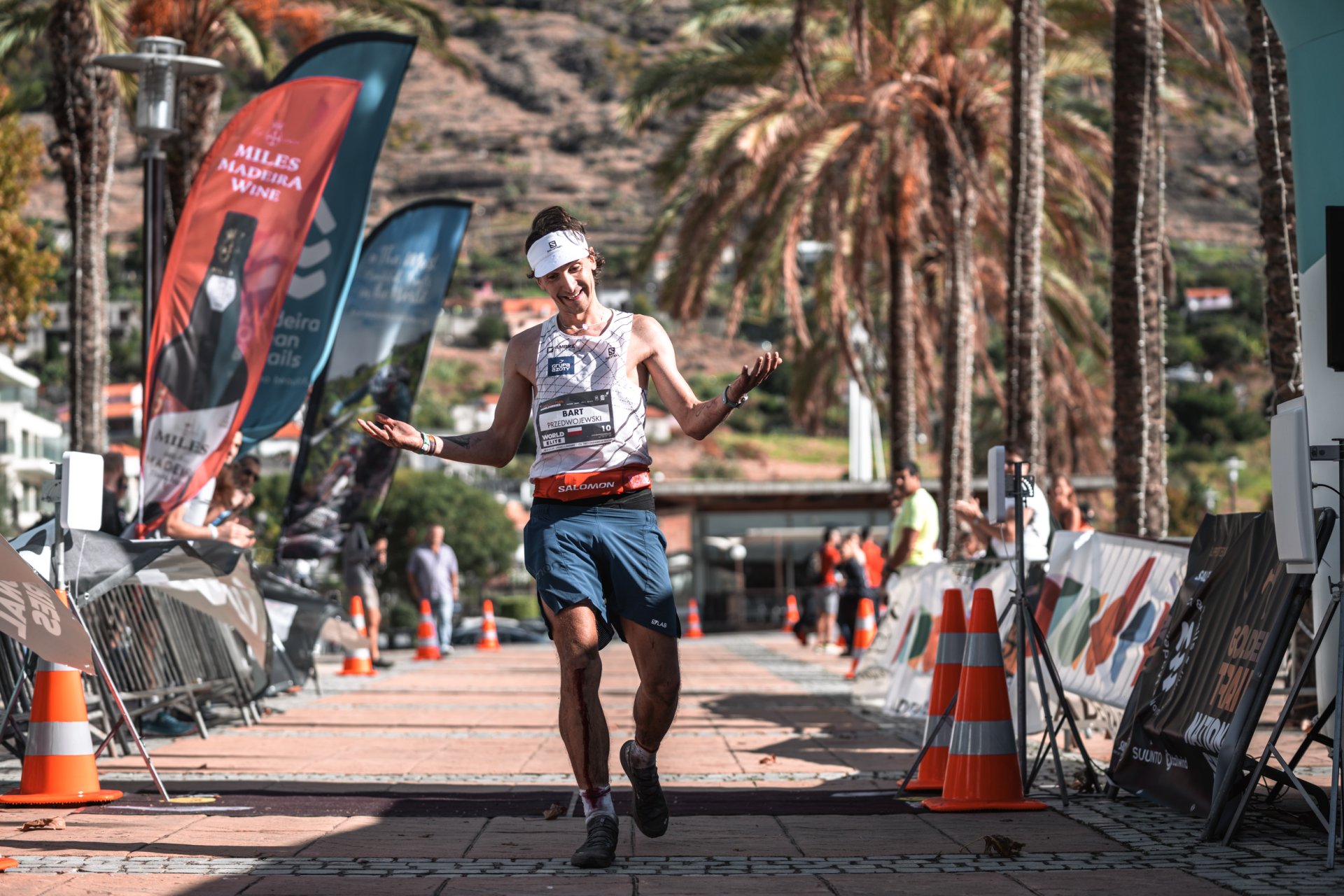
After a catastrophic 2022, Bart Przedwojewski is back on the Golden Trail World Series. Better prepared and raring to go on the eve of Zegama, he revealed his goals for the 2023 season.

Zegama-Aizkorri, the first stage of the Golden Trail World Series, is a legend in the trail-running world. However, you may not know everything about this mythical race!
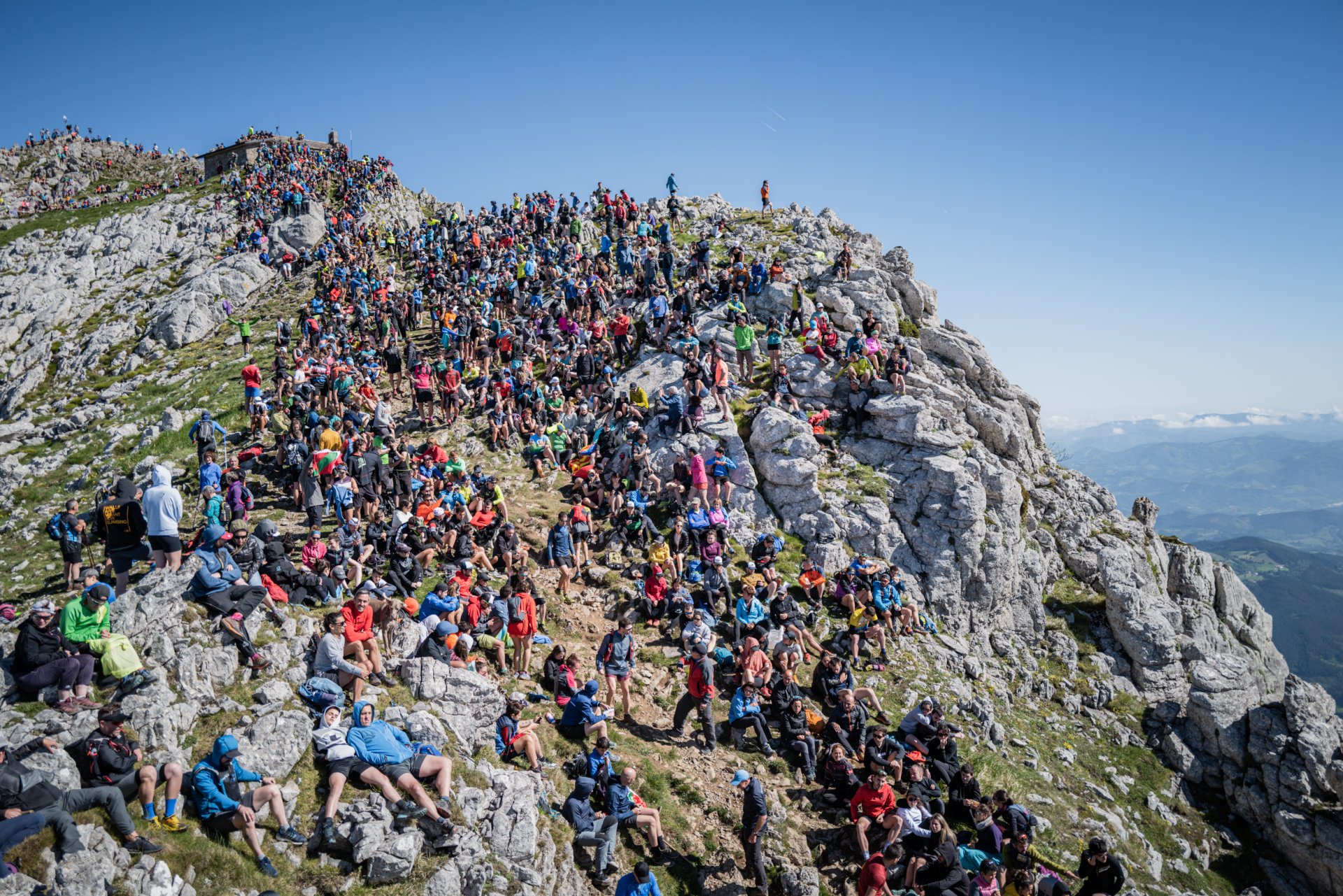
14TH MAY 2023, Start 9:00 AM, 42 KM, 2,736M V+ ZEGAMA, SPAIN

A few days before the start of the season at Zegama, we went to meet Rémi Bonnet, winner of the 2022 Golden Trail World Series. He shared his goals for 2023 and one thing is certain: the odds are on the title!
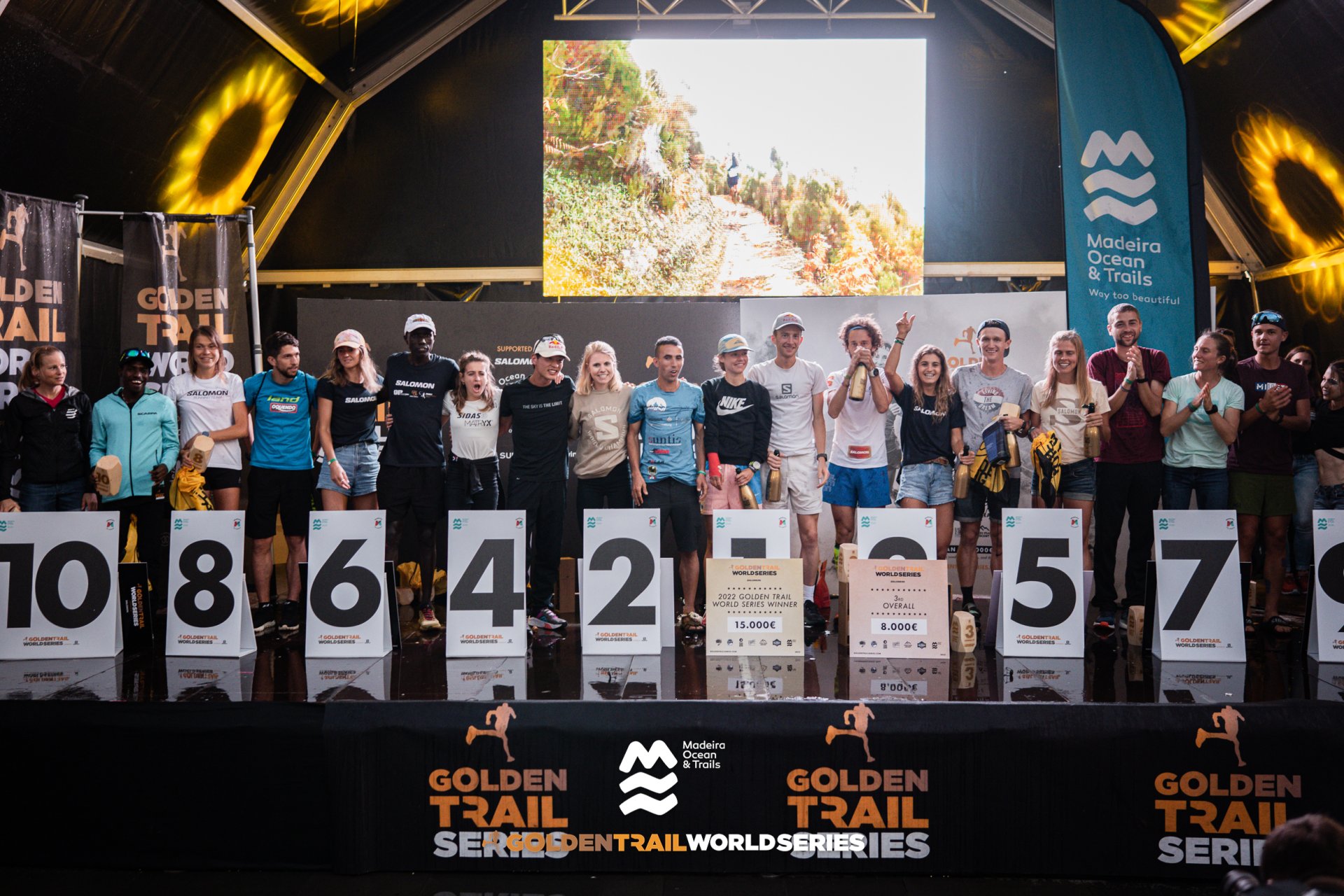
The Golden Trail World Series now has its list of registered elite runners and all we can say is that the level has never been so high. The 2023 season promises to be one hell of a ride!

In the 2023 season, the world’s biggest trail running show will be broadcast in 53 countries and 20 languages on Eurosport. One more step in the development of the Series and in trail running.
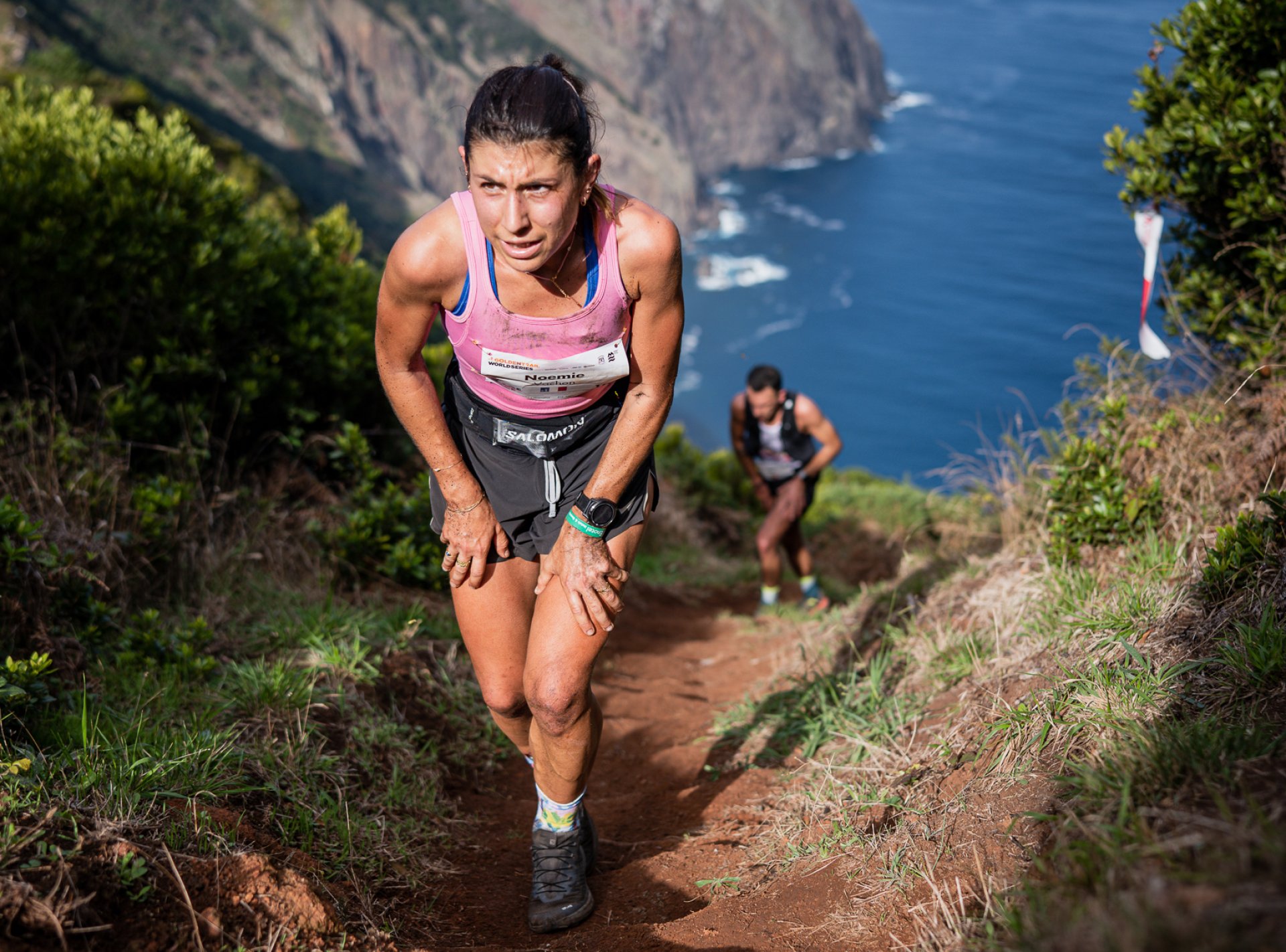
First in the men’s and second in the women’s at the GTNS 2022 Grand Final, Manuel Innerhofer and Noémie Vachon now join the notorious GTWS Elite circuit. Before starting the 2023 season, they gave us an insight into the opportunities that the Golden Trail National Series has to offer.

The Golden Trail Series national editions, the GTNS, enables the best local athletes to compete against each other at a high-level in the hope of making their way into the elite standings.

La première étape de la GTNS France 2023 a eu lieu sur les pentes du Mont-Ventoux.

The Golden Trail Series TV episodes will be released on Golden Trail TV from 11th January 2023.

30th October 2022, Start 9:00 AM, 30.5 KM, 1,555M V+ FUNCHAL, MADEIRA, PORTUGAL Rémi Bonnet and Allie McLaughlin finish the year in style by winning the last stage in the GTWS 2022 Grand Final!

29th October 2022, Start 9:00 AM, 26.2 KM, 1,940M V+ CURRAL DAS FREIRAS, MADEIRA, PORTUGAL By winning the fourth stage of the Grand Final in Madeira, Rémi Bonnet and Nienke Brinkman are the definitive winners of the Golden Trail World Series 2022!

28th October 2022, Start 5:00 PM, 6.6KM, 350M V+ CANIÇAL, MADEIRA, PORTUGAL In a short but intense time trial Elhousine Elazzaoui and Nienke Brinkman demonstrated their speed.

27th October 2022, Start 9:00 AM, 26.6KM, 1,425M V+ SEIXAL, MADEIRA, PORTUGAL Rémi Bonnet and Nienke Brinkman strengthen their leads by winning the second stage of the Madeira Ocean&Trails® Stage Race.

26th October 2022, Start 9:00 AM, 24.5KM, 1,540M V+ SEIXAL, MADEIRA, PORTUGAL Rémi Bonnet and Allie McLaughlin win the first of the five stages of the Madeira Ocean&Trails® Stage Race, the Golden Trail Series Grand Final.

Newlyweds and currently both ranked in the Golden Trail World Series top 10, Tabor and Eli Hemming are treating themselves to a dream honeymoon in Madeira at the Golden Trail World Series!

Currently second in the GTWS overall ranking, Sophia Laukli is THE women’s revelation this trail-running season. She hesitated a long time about participating in the final, which is very close to her ski season, but she has at last decided she will come to Madeira!

From 26th to 30th October 2022, 5 stages, 109KM, 7,382M V+ Madeira, PORTUGAL / After 6 exhilarating legs in Europe and the USA, the world’s top trail runners will be in Madeira from 26th to 30th October to fight it out on the Madeira Ocean&Trails® Stage Race, in the Golden Trail Series Grand Final.

After Mark Kangogo’s official disqualification for testing positive for two substances banned by the World Anti-Doping Agency (WADA), we wanted to pass the floor to Pierre Sallet from the Athletes For Transparency Association (AFT) – at the origin of the Health Programme, – to explain the Programme’s precise role, which is now used by the world’s biggest trail running races (Golden Trail Series, UTMB® Mont-Blanc, etc.) and more broadly in sport in general.

Mark Kangogo having accepted his suspension after controlling positive for two substances banned by the World Anti-Doping Agency, the official winner of 2023 Sierre-Zinal is now Andreu Blanes!

On Monday 10th October 2022, the GTS was informed by the Sierre-Zinal Executive Committee that disciplinary proceedings have been brought against the men’s winner of the 2022 edition.
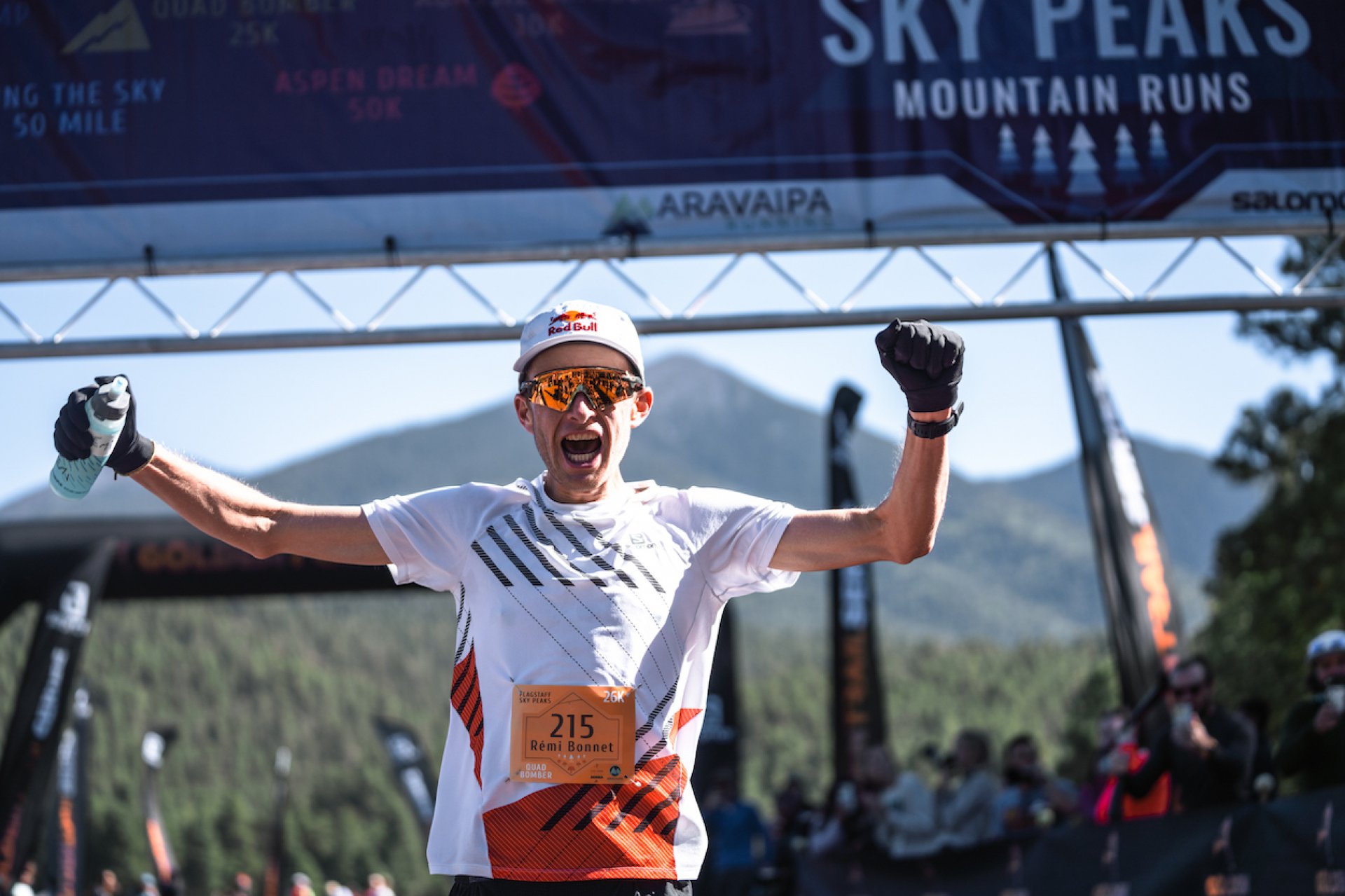
25th September 2022, Start 7:30AM, 26KM, 1,266M V+ FLAGSTAFF, USA Rémi Bonnet and Nienke Brinkman both take the win at the last race of the season and are now leading the Golden Trail World Series before the Grand Final on Madeira Island.

Second in the 2021 GTWS, Francesco Puppi had a difficult start to the season after suffering several elbow injuries. But he proved at Pikes Peak: he is back!

After 8th place at Sierre-Zinal, Danial Osanz just finished an eye-popping 2nd place at the Pikes Peak Ascent, the 5th stage of the GTWS.
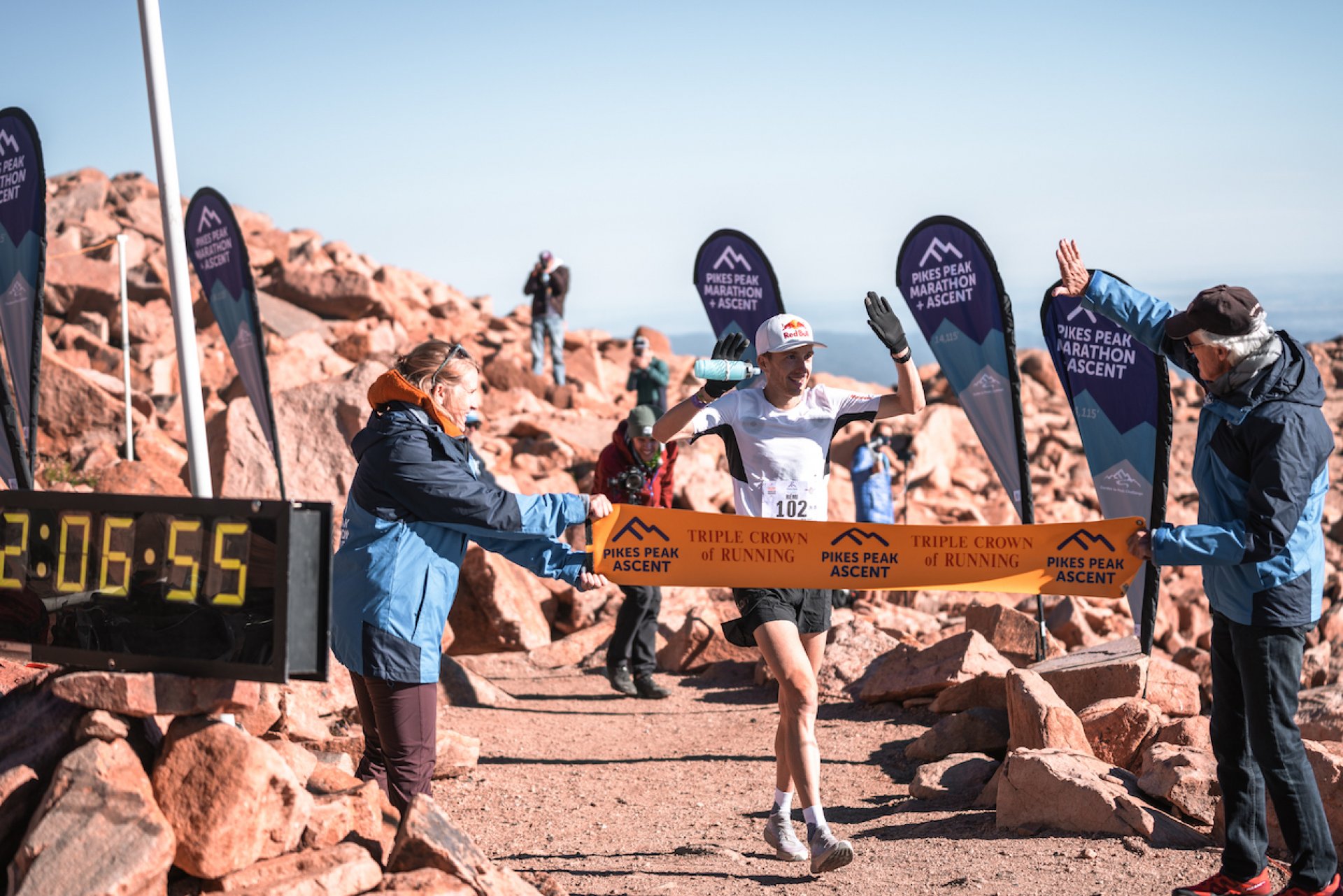
17th September 2022, Start 7:00 AM, 21KM, 2,382M V+ MANITOU SPRINGS, USA Rémi Bonnet and Nienke Brinkman win the 5th stage of the Golden Trail World Series
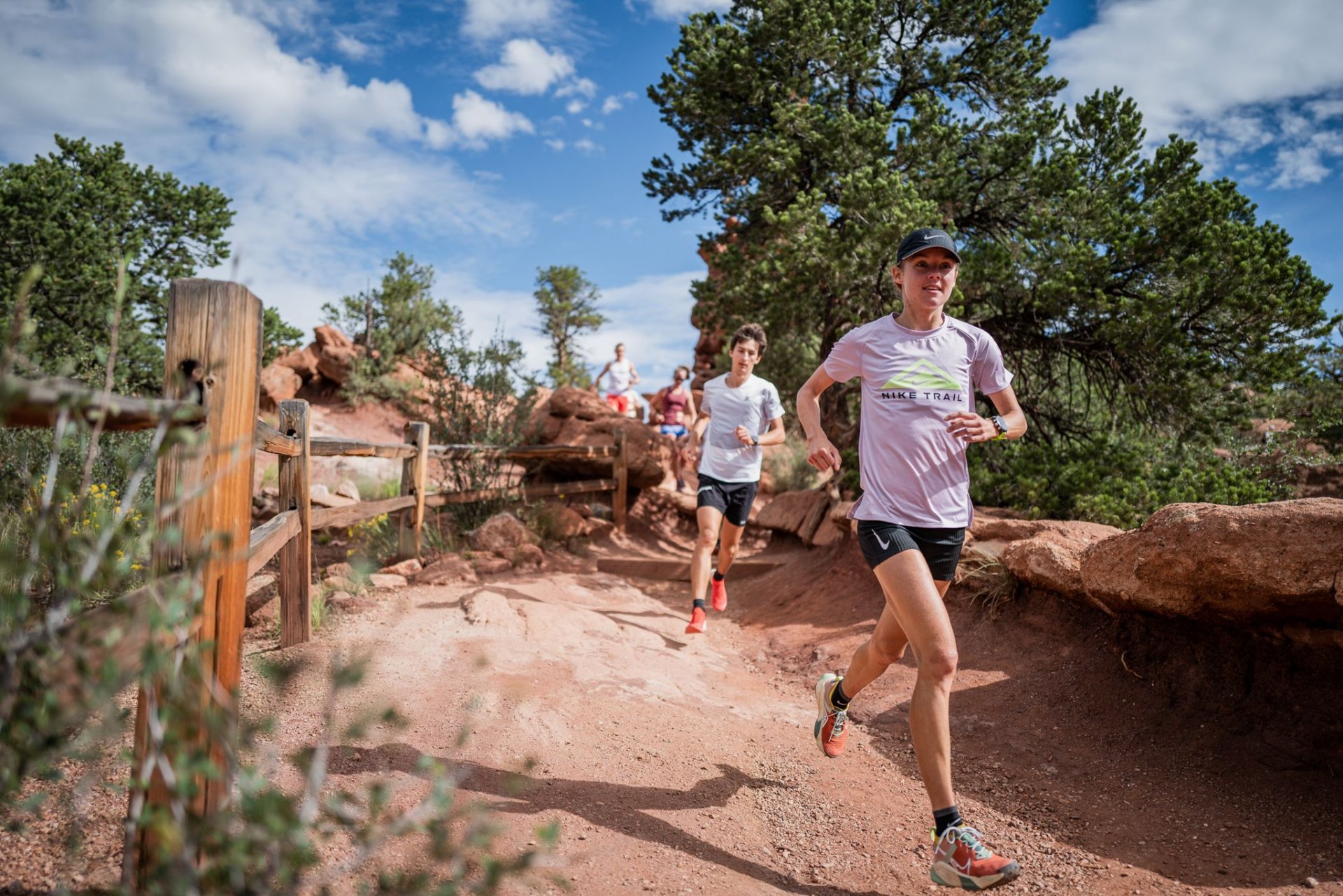
After finishing 3rd at the European Championships – Marathon, Nienke Brinkman is now targeting the Golden Trail World Series podium!
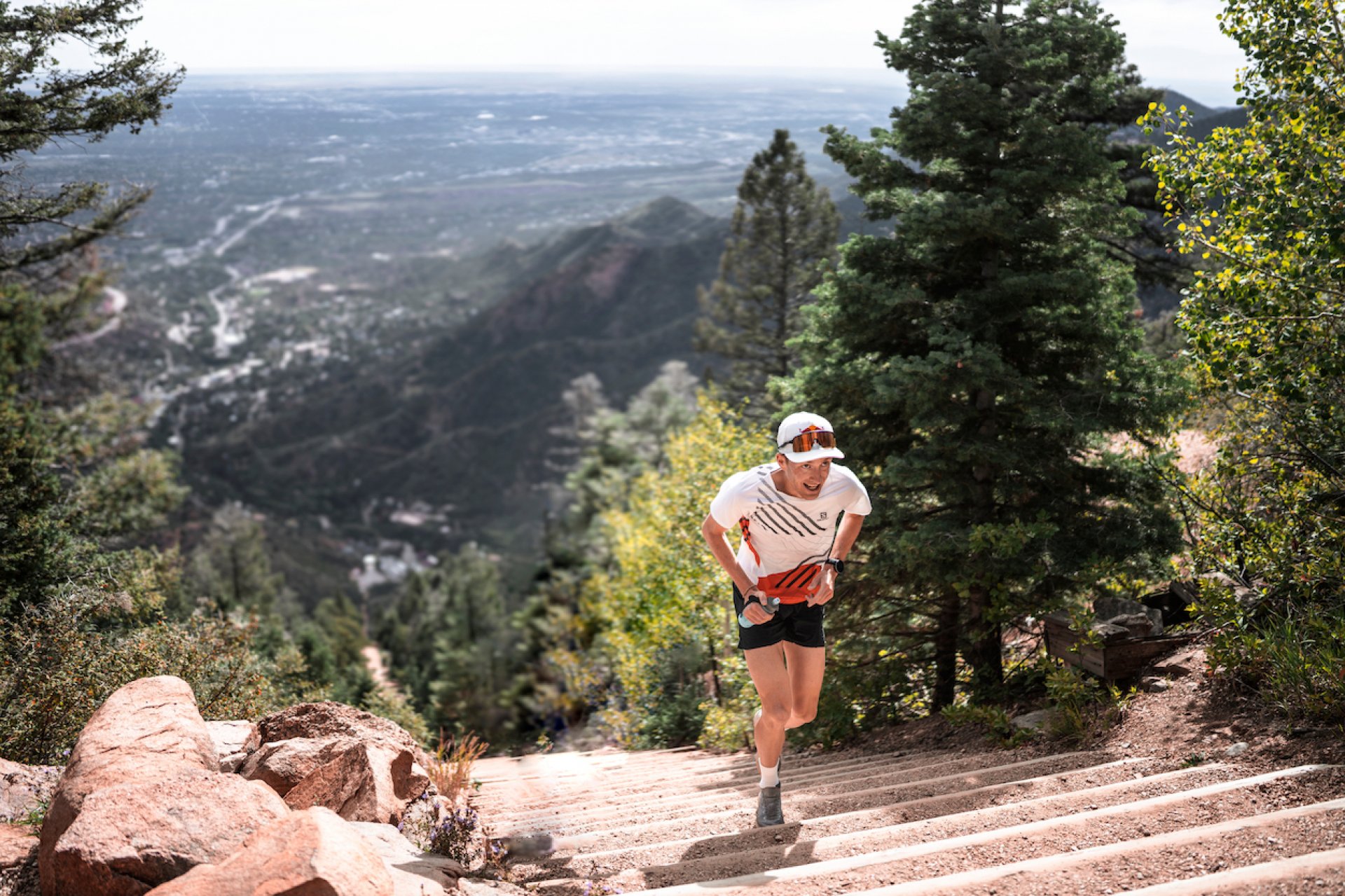
On the sidelines of the 5th stage of the Golden Trail World Series, Rémi Bonnet just beat the record on the legendary Incline at Manitou Springs!
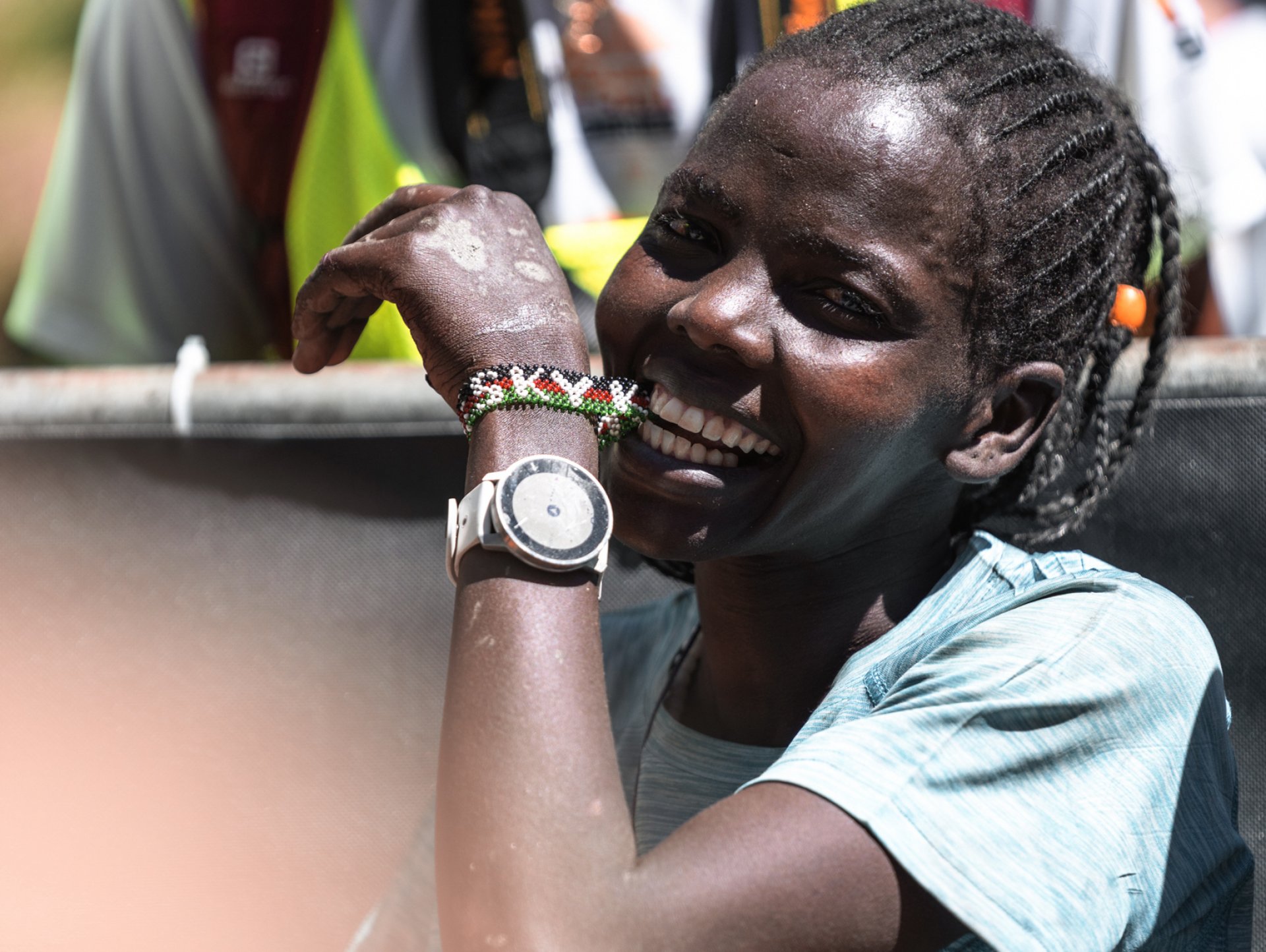
13th August 2022, Start 11:00AM, 31KM, 2,200M V+ SIERRE, SWITZERLAND Esther Chesang took victory at the 4th stage of the GTWS. To finance her trip she sold solidarity bracelets to raise a total of 1,400 euros.

13th August 2022, Start 11:00AM, 31KM, 2,200M V+ SIERRE, SWITZERLAND 5th at Sierre-Zinal this weekend, Kilian Jornet couldn’t find his groove due to cramping!

De pasarse cinco meses afectado por la tercera vacuna contra la Covid a segundo en Sierre Zinal.
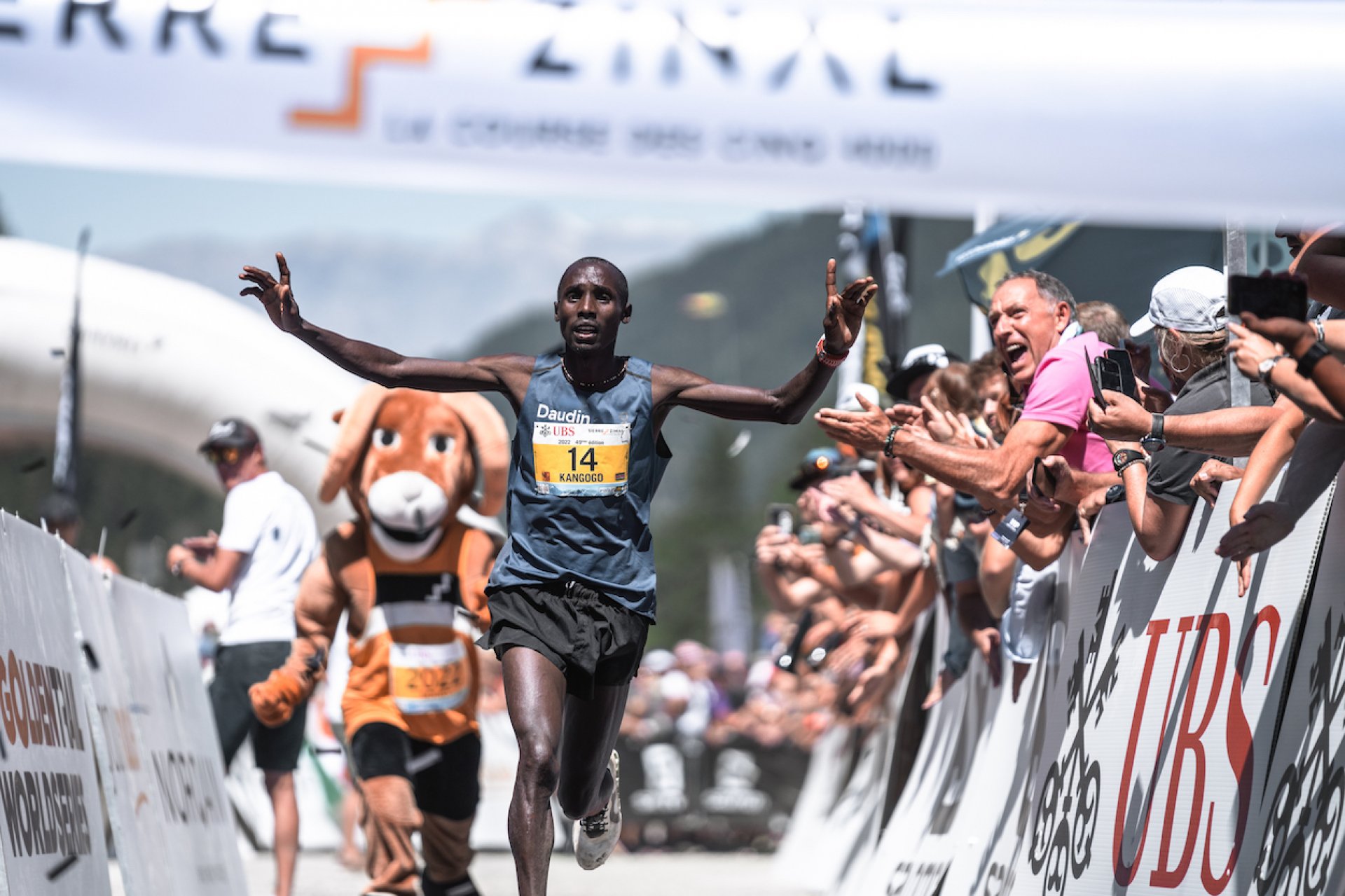
13th August 2022, Start 11:00AM, 31KM, 2,200M V+ SIERRE, SWITZERLAND The Kenyans Esther Chesang and Mark Kangogo won the 4th stage of the GTWS, a first time for African runners!

Just before the Marathon du Mont-Blanc and after Zegama, Greg Vollet, Director of the Golden Trail World Series, was interviewed by the website lookcharms.com. Greg talks openly about the origins of the GTWS project and of what he's trying to do to grow the trail running sport on a worldwide scale and showcase the athletes.
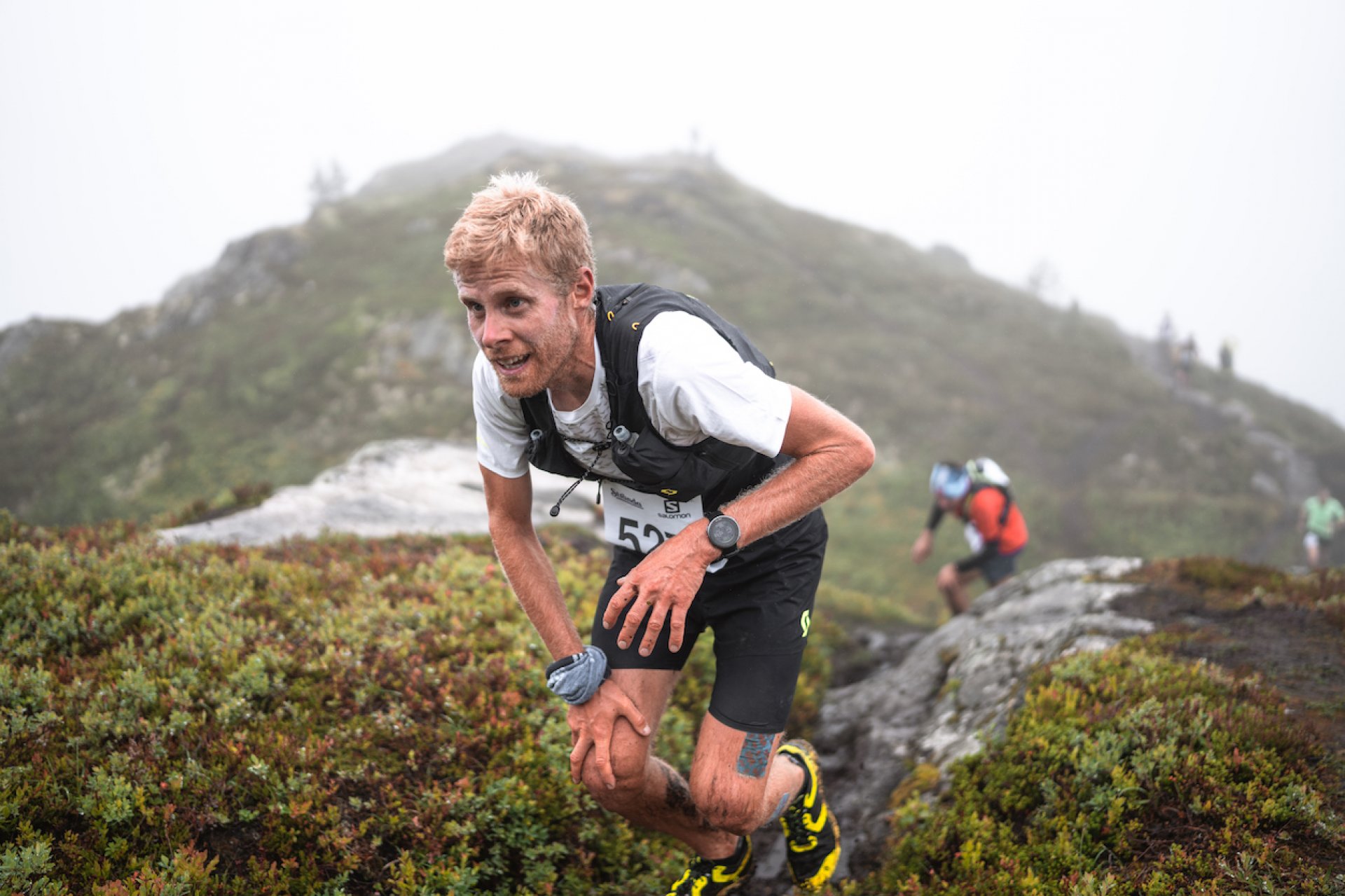
Les deux coureurs français ont déjà brillé à Sierre-Zinal et ont de grandes ambitions pour cette quatrième étape de la Golden Trail Wold Series.

España tiene hasta cuatro corredores en el top-10 de la GTWS y todos ellos estarán en Sierre Zinal

Les deux coureurs suisses Rémi Bonnet et Maude Mathys font partie des favoris sur l’une des courses les plus mythiques du monde.

13TH AUGUST 2022, Start 11:00 AM, 31 KM, 2,200M V+ SIERRE, SWITZERLAND For the 4th stage of the Golden Trail World Series takes place at Sierre-Zinal and welcomes an unprecedented stacked field!

The surprise winner of the Golden Trail World Series 3rd stage, Sophia Laukli, proved her place in international trail running!

6TH AUGUST 2022, 11am start, 25 km, 1,700 m elevation gain STRANDA, NORWAY The Golden Trail World Series went to a Nordic country for the first time in its history! This weekend, the Stranda Fjord Trail Race was the 3rd leg of the world trail cup. A physically and technically demanding race that attracted the world’s best athletes to Scandinavia for the event.

En terminant sur le podium de la Stranda Fjord Trail Race, 3e manche de la Golden Trail World Series, Emelie Forsberg a prouvé qu’elle était de retour.
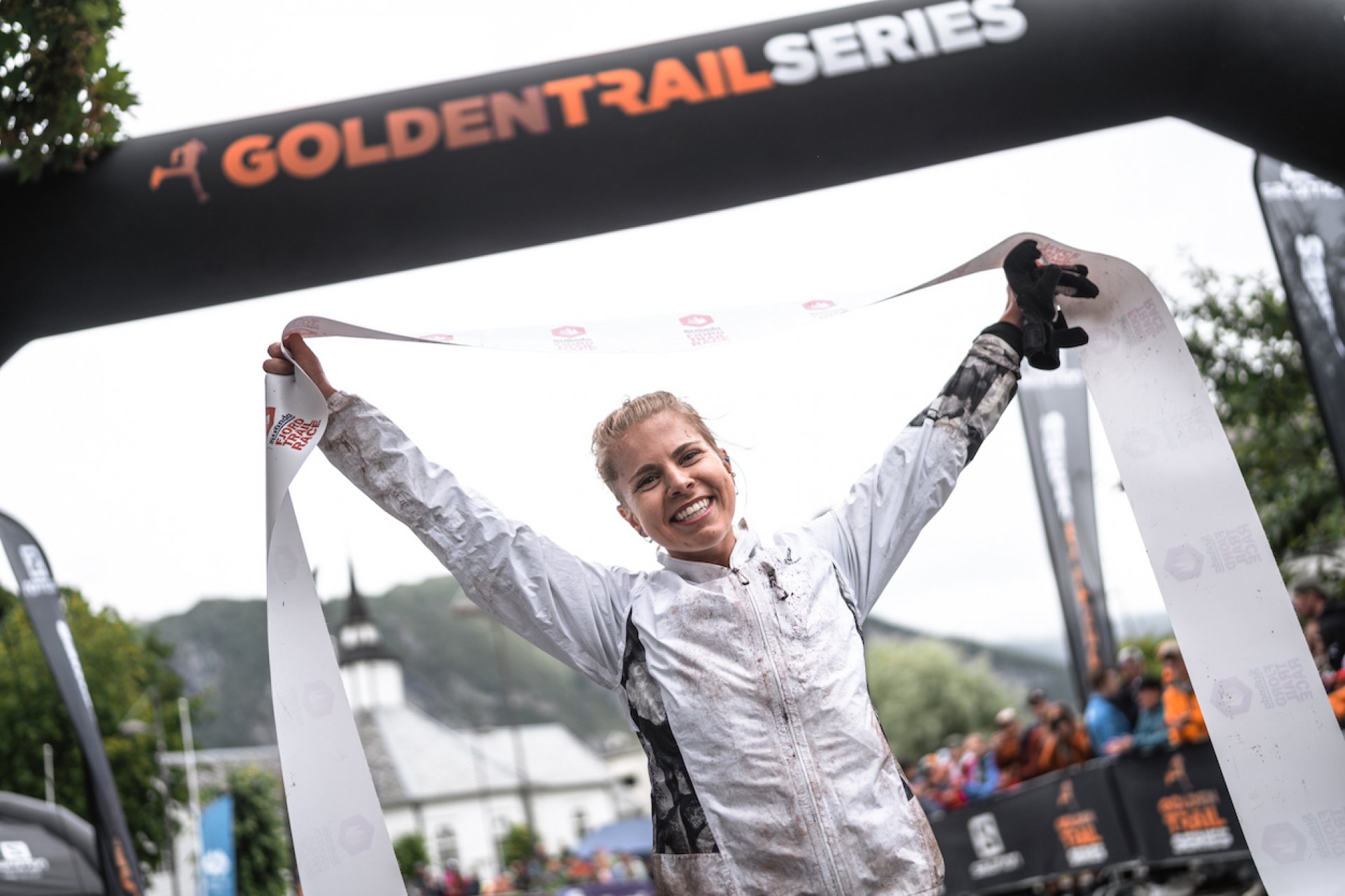
6TH August 2022, Start 11:00 AM, 25KM, 1,700M V+ STRANDA, NORWAY Jonathan Albon and Sophia Laukli win the Golden Trail World Series’ most technical race!
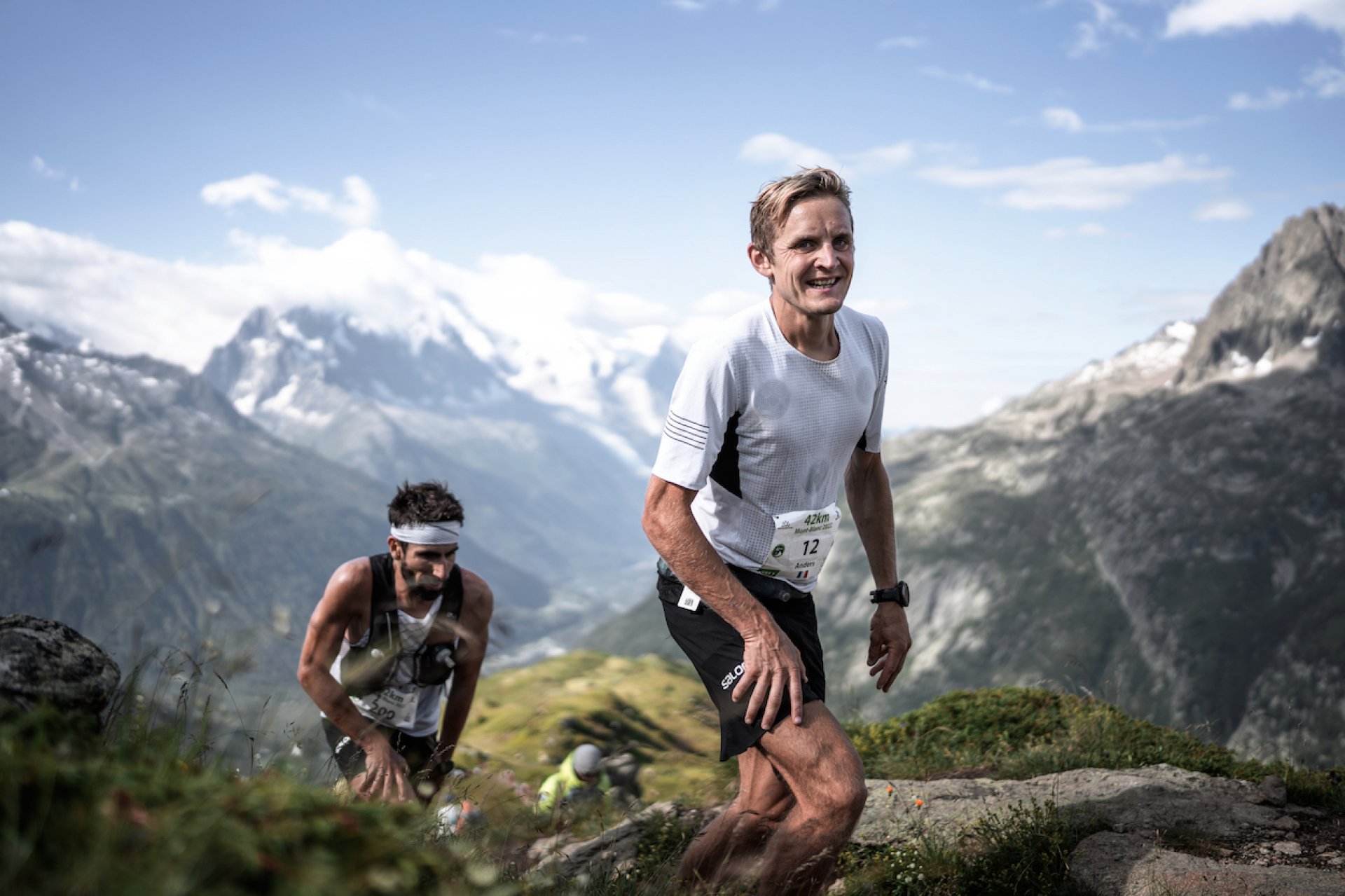
Famous for his technical skills, Anders Kjaerevik is running tomorrow at the Stranda Fjord Trail Race, on home ground. He might be confident about being able to bag a top 10 place, but he’s more interested in highlighting the importance of having a Golden Trail World Series stage to be able to promote trail running in Norway.
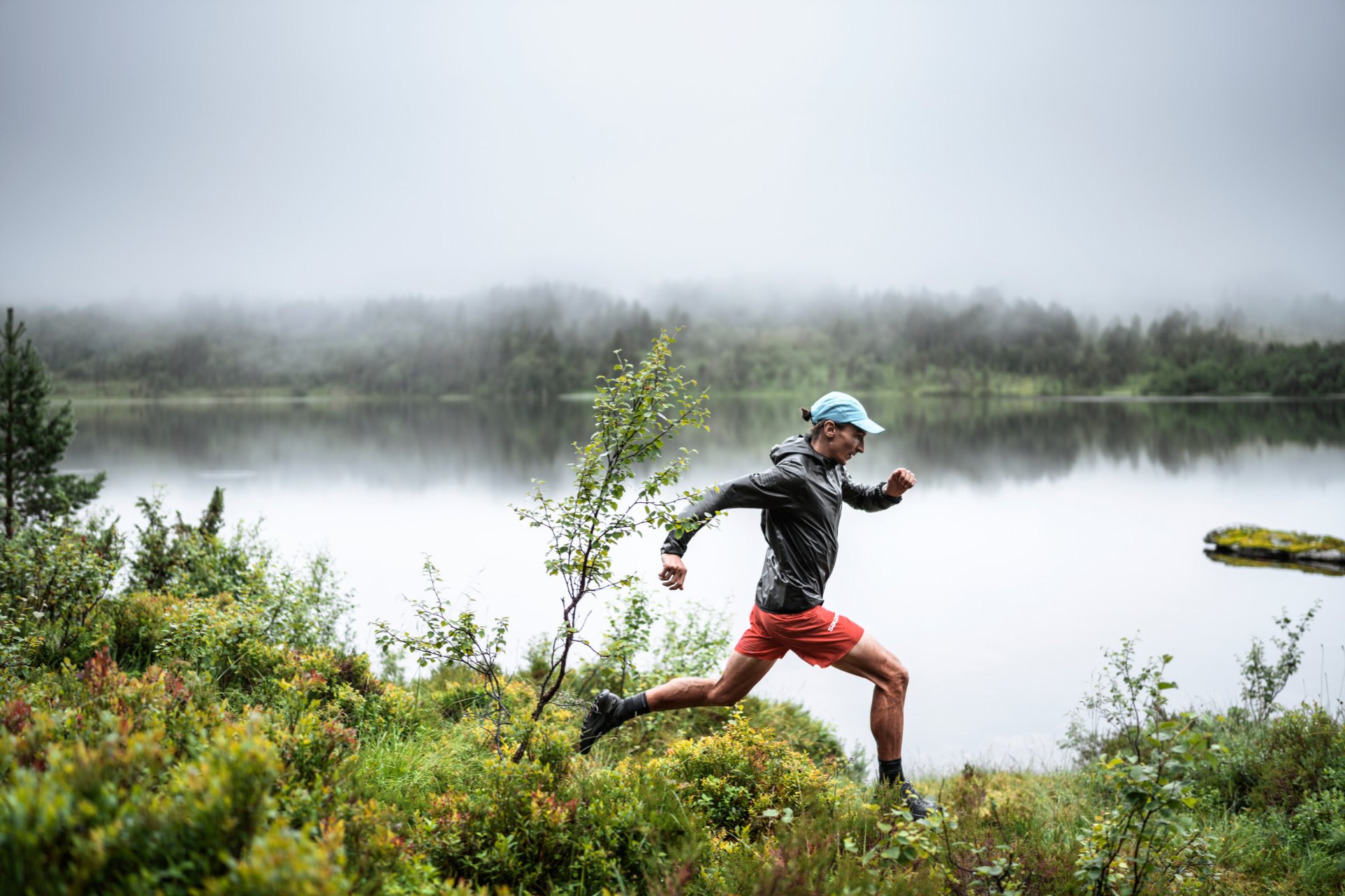
After a difficult start to the season, Bart Przedwojewski enters the Golden Trail World Series 2022 at the Stranda Fjord Trail Race, and we can certainly say that the winner of the Golden Trial Championship in 2020 has big ambitions.

Jonathan Albon and Sara Alonso take today’s win, Davide Magnini and Sara Alonso lead the overall ranking!

Le brouillard tarde à se dissiper au-dessus du lac de Guerlédan. Un son amplifié d’une sono lointaine fend la brume qui recouvre le parc de l’Abbaye de Bon Repos. Près de 1 000 vaillants traileurs ont accepté le défi breton du Trail de Guerlédan, deuxième manche de la Golden Trail National Series ; un défi repoussé pour certains depuis deux ans pour raisons sanitaires. Un œil sur la ligne de départ révèle de grands absents : les têtes d’affiche de la première étape – l’Ergysport Trail du Ventoux – n’ont pas fait le déplacement jusqu’en Bretagne, à l’exception de Enzo Ratti (Esprit Volcans - 10e au Ventoux) et Anthony Boucard (Team Moonvalley - 18e). Une startlist qui annonçait donc de beaux combats en course et de belles opportunités à saisir.

For the 2022 season, we will release two episodes for each of the 6 stages and the final. In the pre race podcast, we'll discuss race details, athlete's insight, and what to expect during the live video coverage on race day. In the post race podcast, we'll analyse the race highlights, and dive back into the race experience together with the male and female winners.
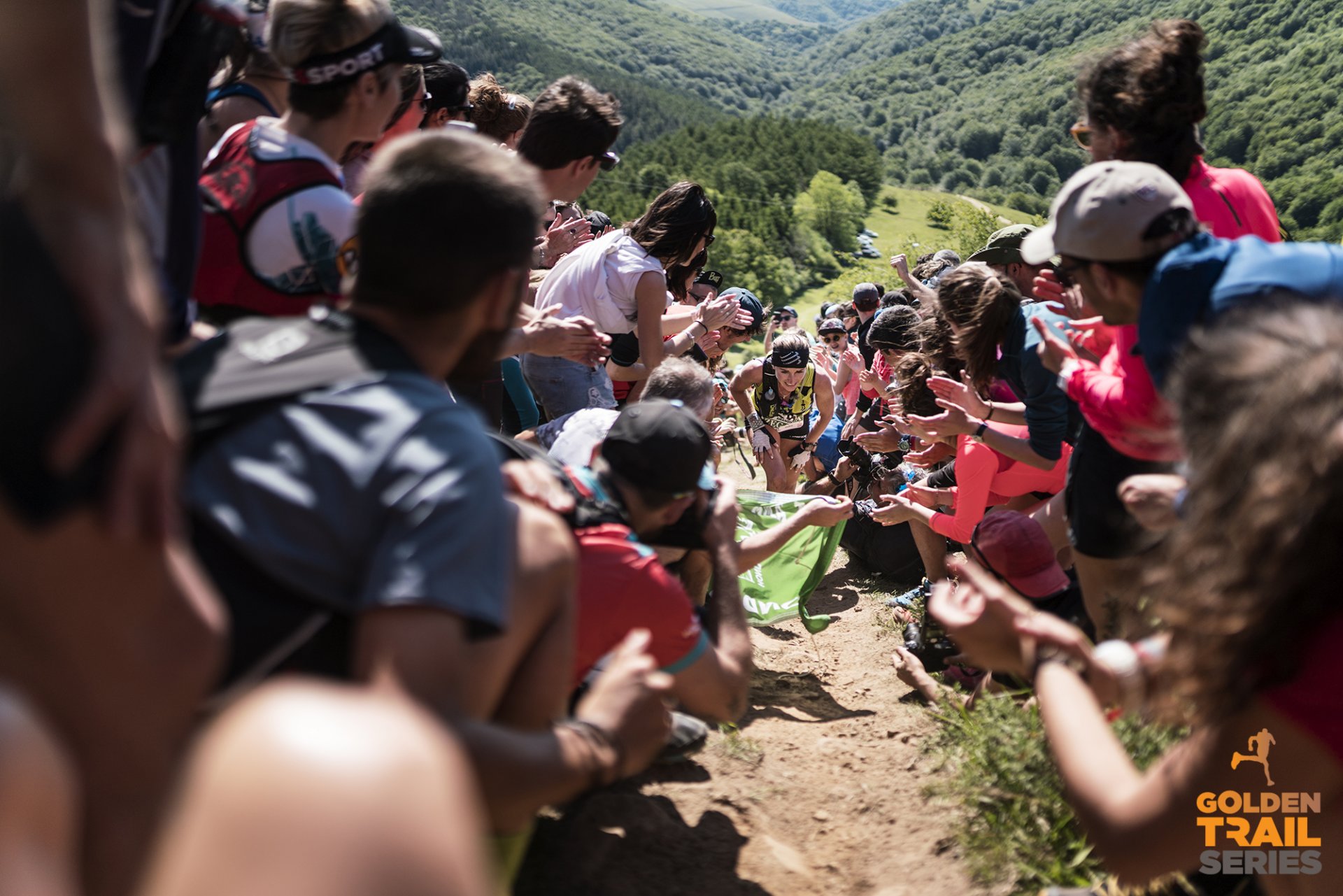
After four amazing seasons, the Golden Trail World Series returns in 2022 with new ambitions. They include: supporting athletes in their quest to become professionals and above all making trail running a must-see, televisual event.

After an epic week in the Azores, Janelle Lincks and Darren Thomas win the GTNS 2021 Grand Final and three Golden Tickets to be able to compete at the highest international level on 3 of the Golden Trail Championship 2022 rac
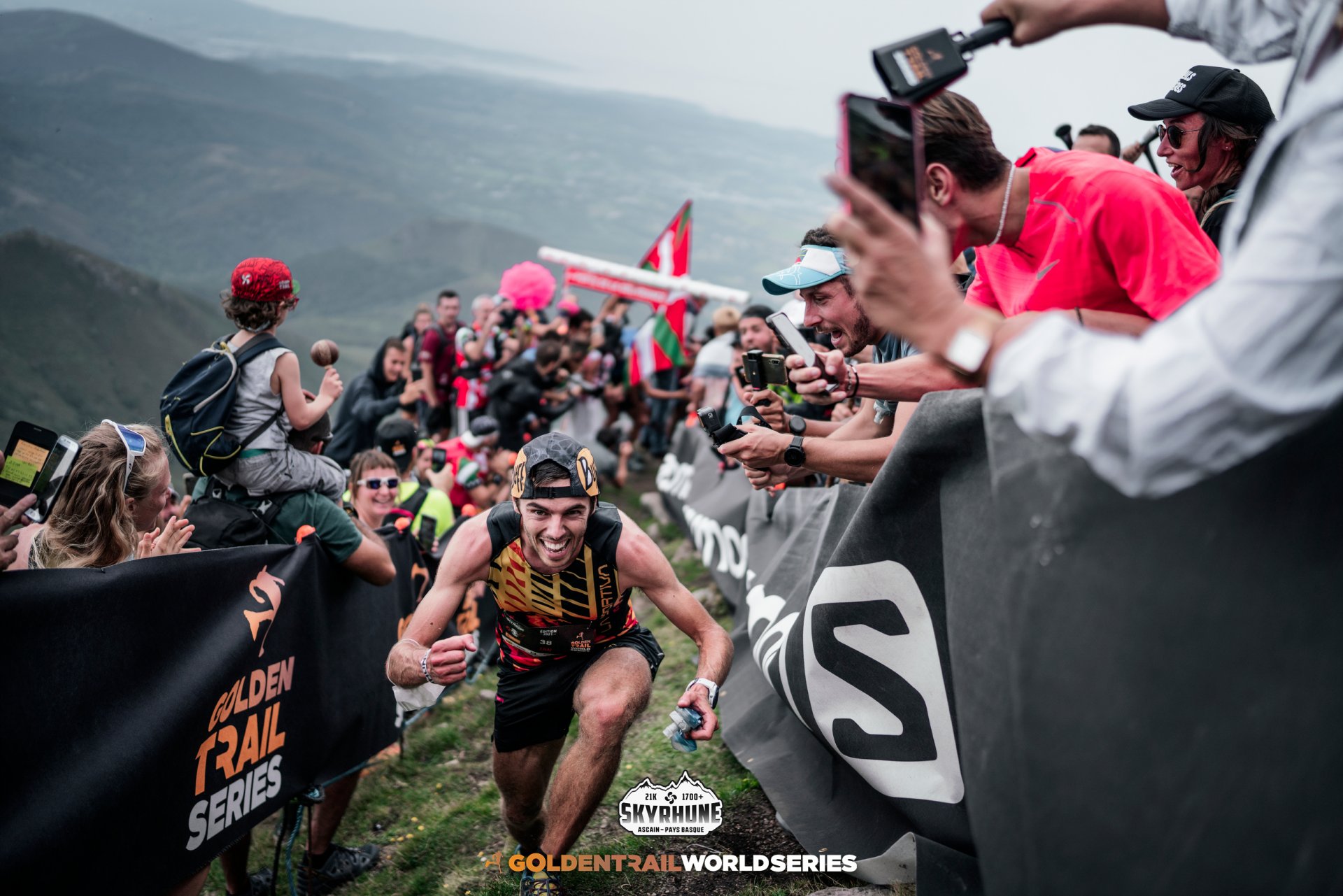
Jan Margarit and Nienke Brikman explode the Skyrhune records at the last stage of the Golden Trail World Series.

Maude Mathys and Francesco Puppi are victorious at the Grand Final in El Hierro, Maude Mathys and Stian Angermund win the overall ranking.